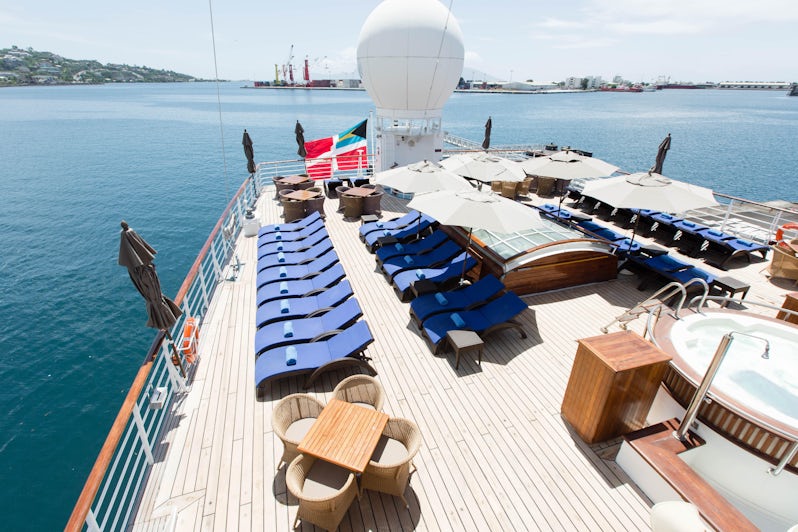

What Is a Cruise Ship "Flag Of Convenience" -- And Why Does It Matter?

Few cruisers know or care what country their favorite cruise ship is flagged in.
The names of different countries ranging from the Bahamas to Panama to the Netherlands to Italy are usually visible on the front of the ship; maybe you noticed it when you took a picture standing next to your vessel in port.
These "flags of convenience" are used for the majority of the world's passenger and cargo fleet -- and it's pretty rare to have the United States seen there.
That's turned out to be a big problem in 2021. A year since the pandemic brought the travel industry to a halt, cruising has still not restarted in the United States, held up by orders from the U.S. Centers for Disease Control and Prevention that largely apply to foreign-flagged vessels.
The U.S. isn't alone: Australia has banned foreign cruise ships through mid-June 2021, and Canada has banned them entirely through the rest of this year and into February 2022. Meanwhile, locally flagged ships, which are generally smaller, are seeing the possibility of a spring start.
It all begs the question: Why does a ships' flag matter anyway? And why is changing the flag so difficult?
How Did Flags of Convenience Come About?
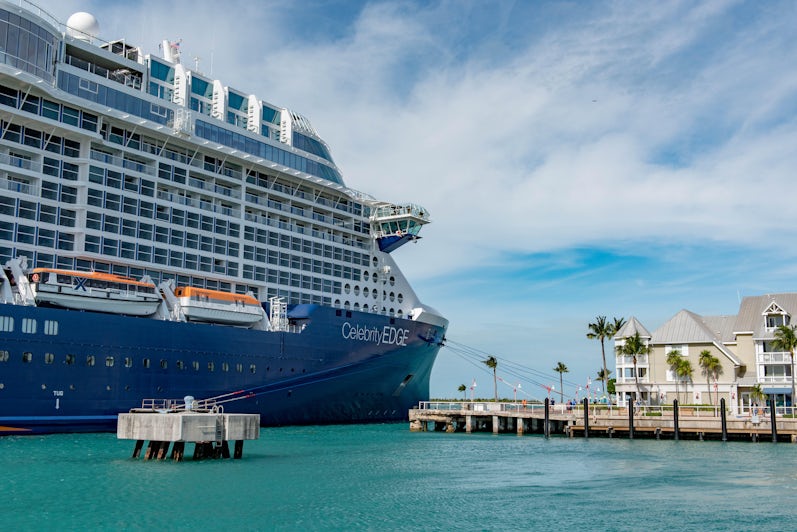
Blame Prohibition.
Under Prohibition laws that began in America in 1920, passenger liners registered in the United States could not legally serve alcohol, putting them at a substantial disadvantage to foreign competitors who could still allow folks to imbibe while onboard. To get around this, some U.S.-based passenger steamship lines began registering their ships in Panama, with the first two U.S. vessels reflagging to Panamanian registry in 1922.
Benefits began to add up. Operators found labor to be cheaper, restrictions less onerous, and tax implications reduced. When Prohibition ended in 1933, some U.S. operators never went back, and the practice caught on and became commonplace.
Now, 99 years after the first U.S. passenger ships transferred to Panamanian registry, it is a global health pandemic -- not abstinence from alcohol -- that is causing issues.
Problem One: Required Stops In Foreign Ports
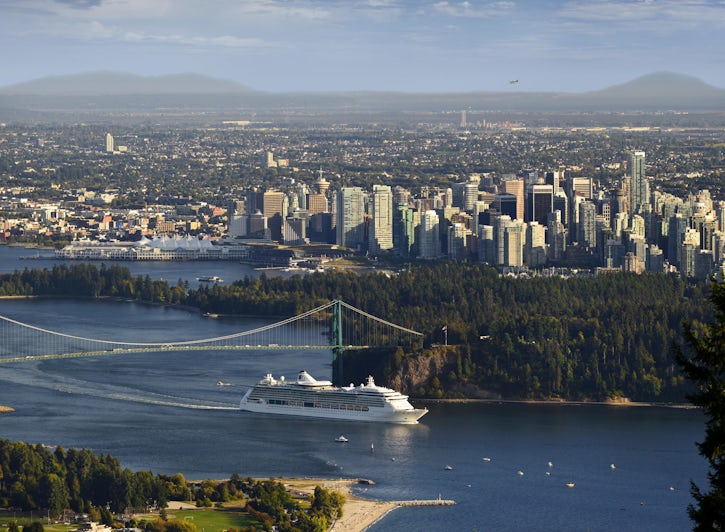
The bias against ships being foreign-flagged is not a new one.
The U.S. Passenger Vessel Services Act is meant to encourage, if not favor, domestically flagged passenger ships operating in American waters.
Also known as the PVSA, the order dates to 1920 and focuses on the transportation of passengers from one U.S. port to another. The law states this can only be accomplished by a U.S.-flagged ship, unless a stopover is made at a "distant foreign port."
In its official language , the PVSA, "prohibits commercial vessels such as cruise ships from allowing passengers to board at one U.S. port and debark at another U.S. port."
Although updated over the intervening years, this legislation was crafted at a time when the U.S. maintained a strong merchant and passenger shipping presence in the world, and protections were needed to offer American companies a competitive advantage.
For the cruise industry, the PVSA has meant that the vast majority of itineraries departing from and returning to the United States need to call on foreign ports. A cruise from Boston to Maine needs to call on Bermuda or Canada before it can return. Cruises to Alaska have to stop in Canada. Caribbean voyages need to call on Caribbean islands.
The only lines that are exempt from this are small ship, U.S.-flagged lines like American Cruise Lines or UnCruise Adventures. And that's why those are among the only cruise lines that are likely to sail in Alaska in summer 2021, now that Canada has banned cruise ships from stopping.
Problem Two: Perception of Foreignness
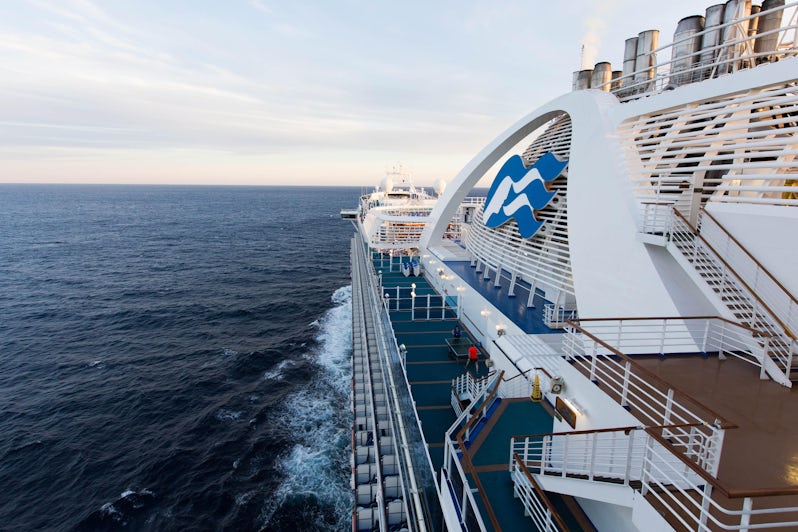
The perception of "foreignness" was exploited at the very beginning of the coronavirus pandemic. Florida initially refused ships operated by Holland America Line and Princess Cruises to dock in the state because of their foreign flags, despite carrying American passengers and homeporting in Florida for several consecutive winters.
This sparked a public debate about taxation -- how much money American-based corporations who flag vessels in foreign countries pay to the United States. The foreign flags kept the cruise industry from seeking bailout money during the pandemic, for example, as some members of Congress were vocal about not giving aid to companies that benefit from overseas tax regulations.
It also raised the unpleasant idea that a foreign-flagged ship should seek the help of its flag nation in a time of crisis, and not its homeported country, as the U.S. Coast Guard told cruise ships , the majority of which homeported in the United States, to "stay away" and seek assistance elsewhere.
Why Can't Existing Ships Just Be Reflagged in the United States?
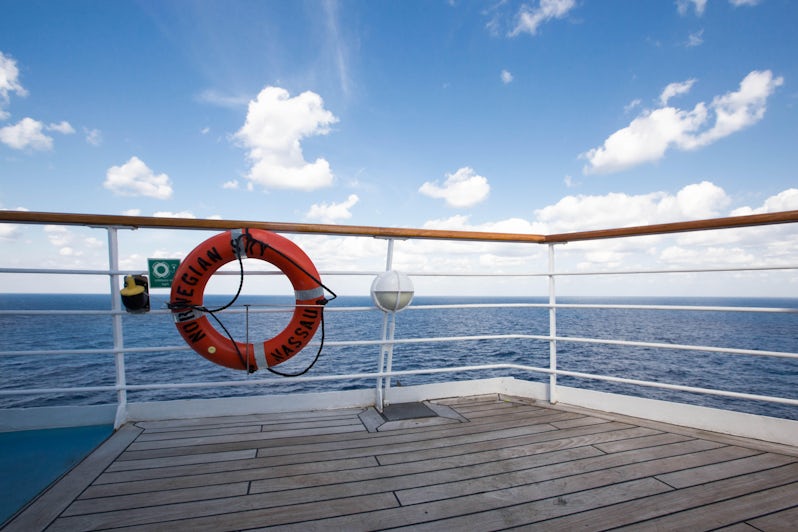
So with these problems, why can't cruise operators simply just reflag their ships in the United States? It's a complicated legal issue.
To be a U.S.-flagged vessel, that ship must be constructed entirely in the United States and crewed with primarily American crewmembers. It sounds easy but both of those conditions present unique challenges.
First, no American shipyard has constructed a large-scale passenger ship since 1958, when Moore-McCormack's S.S. Argentina was launched from the Ingalls Shipyards in Pascagoula, Mississippi.
While U.S. shipyards are still highly experienced at building passenger ferries, smaller coastal ships, riverboats and commercial vessels, they simply do not have the same experience, procedures and processes in place as shipyards in Germany, Italy, France and Finland that construct much of the world's modern large-scale cruise passenger fleet.
Though the United States has very high standards for shipbuilding and marine safety, they are not necessarily better than those governed by the International Maritime Organization, which is headquartered in London and sets out regulations for shipping. The IMO also developed Safety Of Life At Sea standards that are utilized around the world.
The other problem -- one that Norwegian Cruise Line ran into when it was developing its American-flagged Hawaii operations back in 2004 -- is that finding qualified American crews willing to put in the hours and deliver the kind of service provided by international crews is easier said than done.
In the early days of its Hawaiian launch in 2004, the line suffered through numerous sailings as American workers received poor reviews for service. Some simply deserted Pride of Aloha (now Norwegian Sky when it docked in Honolulu.
Plus, American wages cost more money, and in the cutthroat cruise business, that means fares would have to go up -- way up. One only has to look at Pride of America's Hawaii sailings to see the difference in cost between a U.S.-flagged cruise and a foreign-flagged one.
Higher Building Costs, Drydock Issues
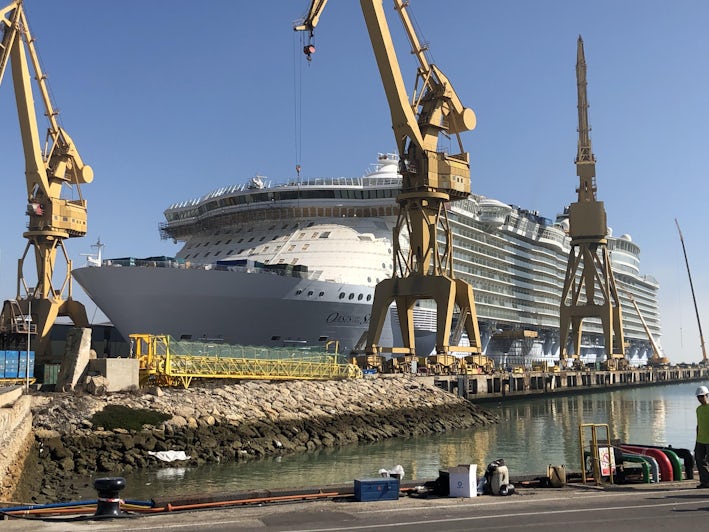
Beyond labor, everything else required to keep a ship flagged in the United States is also more expensive. A 2001 article in the Baltimore Sun notes the average American-flagged cargo ship costs $4 million more per year to operate than a foreign-flagged one -- and that's before two decades of inflation.
"The payroll costs more," states the article. "Taxes are higher. Insurance is more expensive. Ships must be built to the Coast Guard's exacting standards. Repairs must be made in expensive American shipyards."
The drydock issue is a big one. A ship flagged in the United States must return to an American shipyard to be serviced, refitted, or otherwise repaired -- something that would incur time, money and possibly risk safety for a global cruise fleet stationed outside the United States.
Penalties can be charged for repairs made at sea. Penalties are charged if a non-U.S. drydock is used to make repairs.
For ships based near the United States, these restrictions aren't an issue. For a cruise vessel deployed in Europe or elsewhere, however, sailing back to the U.S. to enact necessary drydocks or repairs is expensive, time-consuming and unnecessary.
Flags Not Always Chosen For Lowest Cost
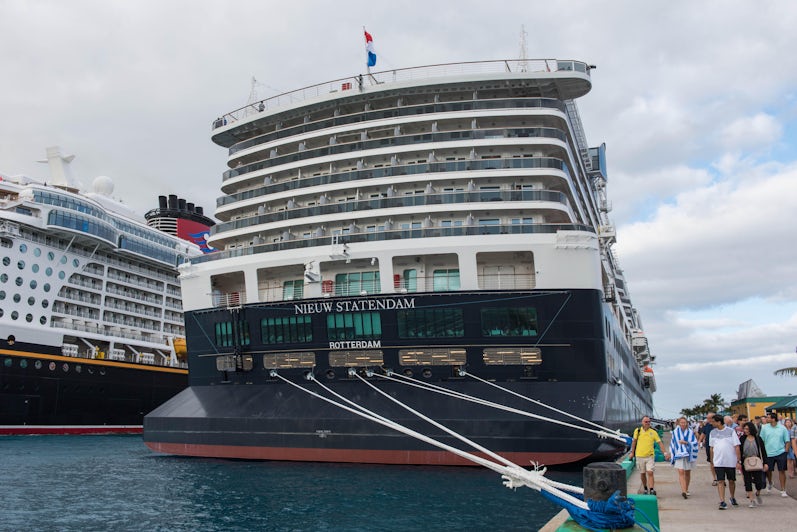
While cynics like to point out that foreign flags are convenient to the cruise and shipping industries primarily for tax purposes, labor regulations and other considerations, not all flags are chosen just for cost.
Holland America Line flags its ships in the Netherlands, in part because of the company's founding heritage in that country and still retains a large number of Dutch captains and senior officers. Thus, every ship in the Holland America Line fleet lists Rotterdam as the port of registry.
Viking flags its oceangoing fleet in Norway, with the homeport of Bergen listed below each vessel's name at the stern. The debut of Viking Star in 2015 was the first time in a decade that a passenger ship had been registered on the Norwegian International Ship Register.
Some cruise lines have given up their home nation flag for a more flexible one. Cunard Line relinquished its Southampton , U.K. registry in 2011 for Hamilton in Bermuda simply so that captains could perform weddings onboard, ending 171 years of tradition.
Foreign Flags Not Likely To Go Away
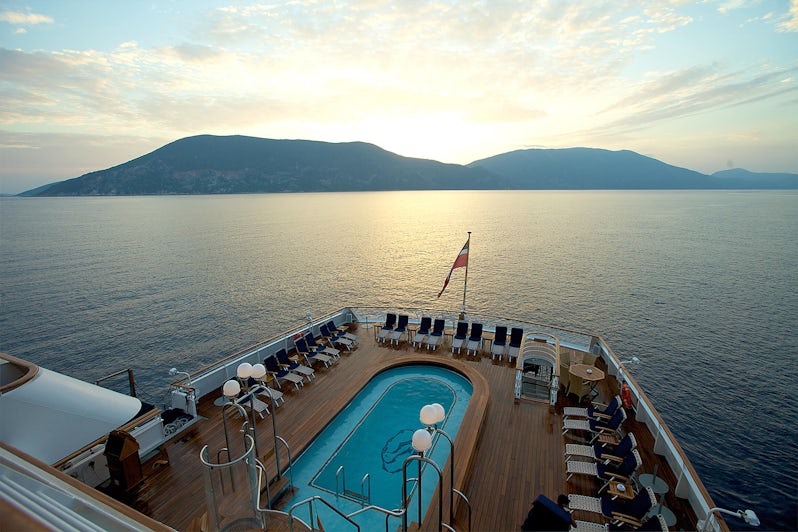
Absent of any federal program to incentivize companies to build ships within the United States, foreign flagging is here to stay. A century of maritime habits and experiences aren't likely to be undone in a matter of months.
What is equally clear is that, unless substantial changes are made to the PVSA, the issue of ships being flagged in foreign countries is also not going anywhere. That, in turn, will impede many cruise lines from offering itineraries calling on more U.S. ports of call, as time always has to be made to visit a "distant foreign port" to satisfy cabotage laws.
What COVID-19 and the cruise industry shutdown has done, however, is reveal an inequality in the way the United States treats the maritime industry versus other forms of travel.
Airplanes aren't turned away from U.S. airports because they were built in another country. Trains and trucks are able to run, regardless of where they were manufactured or who their crew or drivers are.
Until regulatory authorities in the United States are willing to modernize the PVSA, and encourage a domestic restart of the construction of large-scale passenger vessels, U.S.-flagged ships will continue to stay small, both in size and market share.
© 1995— 2024 , The Independent Traveler, Inc.
- CruiseMapper
- Ships and Lines
Cruise Ship Registry, Flag State Control, Flag of Convenience
Cruise ship registry and flags, what is flag-state (control & responsibilities), flags of convenience - all of these are the subject of the following survey. We offer you a list of smaller and really big cruise ships sailing under foreign flags and some info about cruise ship registration by cruise line company (current operator for chartered ships).
What is "Flag State" (definition)
"Flag State" is the ship's registration country under whose laws it is registered/licensed. Just like any marine vessel, a passenger ship operates under its flag state laws (also used if the ship is involved in an admiralty case). Flag states have the authority and responsibility for a ship, exercising control over the ships. They inspect the ships regularly, certify equipment and crew, issue safety and pollution-related documents, etc.
Each of the flag states has its own ship register where all ships sailing under its flag need to be registered. Some countries even have more than one ship register.
What is "Flag State Control" (definition)
The cruise ship's flag state controls the vessel and its crew - an absolute authority. Ships have to comply with all the flag state's maritime rules and regulations, which are, of course in accordance with the international maritime rules and regulations by the IMO (International Maritime Organisation). The flag state has the absolute authority over the ship, for not complying with the norms the flag state can impose penalties on the ship and crew. Flag states are required to carry out regular inspections, to ensure safe and secure shipping of passengers and goods, to send detailed inspection reports to the IMO. The IMO has 167 Governments as members.
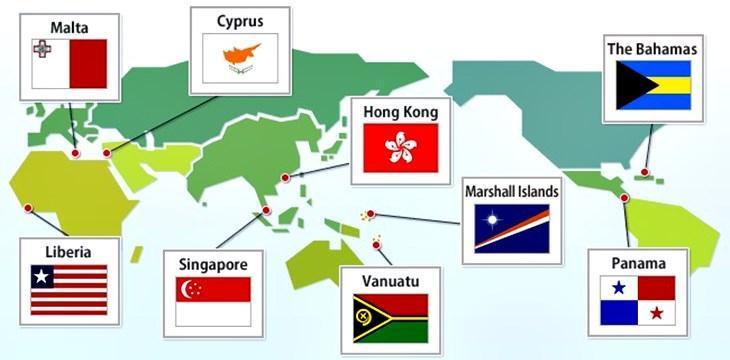
For cruise ships registered in the USA - the USCG (US Coast Guard), search and rescue operations. "The Officer in Charge Marine Inspections" - for the inspection of all US-flagged cruise ships (and other marine vessels) relating to construction/equipment/manning, casualties/accidents and for investigations of cases of misconduct/negligence/incompetence of officers and crew.
For cruise ships registered in the UK - the MCA (Maritime and Coastguard Agency) is the flag state control executive agency responsible for the implementation of the GB's and the International maritime law and policies. It operates through the UK's HMCG (Her Majesty's Coastguard) - safety control, coastal water monitoring, and testing, issues licenses to officers/crew, monitoring of the UK's AIS network (real-time ship tracking).
What is "flag of convenience" (definition)
"Flag of Convenience" is called the flag state of a merchant ship when registered in a state different from that of its owners. More than half of all merchant ships in the world are registered under flags of convenience, and according to the latest statistics - around 90% of all commercial marine vessels calling on US ports are under foreign flags. There's only one big sea cruise ship registered in the USA - ms Pride of America, and the sole reason for that is she sails in Hawaii exclusively, the whole year-round.
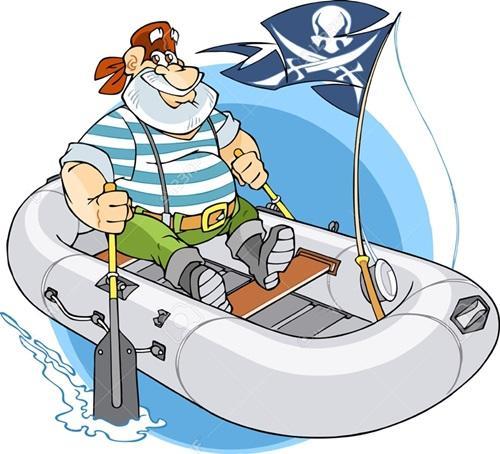
As the market always determines the prices, often choosing a flag state means minimizing costs to maximize the revenue. And for a cruise ship owner, making a choice between using the fiscal advantages of registering ships in the open registry (under "Flag of Convenience") and registration in a national/close registry means making a choice between good business and not so good business.
In 1922, W. Averell Harriman (American politician/businessman/diplomat) registered two of his American-owned ships under the Panamanian flag, the main reason being to avoid Prohibition. In 1948, E. Stettinius (former Secretary of State under Roosevelt) founded the Liberian ship registry, later followed by Bahamas and Bermuda, Malta and Portugal. Some countries (like Italy and Holland/Netherlands) have cruise ships registered in their national registries.
World's most popular cruise ships flags of convenience
- The list of Bahamas-registered cruise ships includes some of the largest passenger ships in the world from the fleets of RCCL, NCL, and Carnival.
- Under the Panamanian flag operate 2 major cruise ship companies - Carnival (CCL started the "Panama flag state" cruising experience with the Mardi Gras ship in 1972) and MSC Cruises (brand of the Mediterranean Shipping Company, one of the world's largest container shipping lines ).
- Bermudian Flag of Convenience and Cruise Weddings. Bermuda is offering its offshore registry for UK-owned ships since 1974. First, the P&O Cruises line changed its cruise ships' flags from London to Hamilton. Most of the Bermuda-flagged cruise ships (all registered in Hamilton ) are from the fleets of Princess, P&O, and Cunard. And the main reason for that is the Bermudian flag of convenience allows captains to perform onboard weddings (the Bermudian flag is, of course, British, but Bermuda's registry has different legislation).
- Under the Italian flag are Costa and AIDA, with all vessels being registered in Genoa .
- Under the flag of Malta are the RCCL brands Celebrity and TUI. In Malta ( Valletta ) are also registered the ships of Celestyal Cruises transferred away from the expensive flag of Greece.
- Under the royal flag of The Netherlands/Holland are all Holland America ships (a Carnival brand).
- Madeira ( Funchal ) is the offshore registry of Portugal, registered in Portugal ships are from the fleets of Classic International and Iberocruceros (Carnival's brand).
- There are no cruise ships registered in Liberia today. For many years, Carnival, Royal Caribbean and Celebrity operated under the Liberian flag, but the dictator Charles Taylor changed all that. Under the Liberian flag of convenience, today sail many cargo ships, though.
- CCL-Carnival Cruise Lines is now the only major brand to split its ships between two flags of convenience (Panama and Bahamas), while the others usually stick to one.
- All Galapagos-based ships are Ecuador-flagged.
Cruise ship flags of convenience vs national flag
The flag of convenience helps ship owners to evade their home nation's "inconvenient" rules/regulations, and often for reasons that are not so good. The negative impact is solely on the crew/staff who works on such ships.
- Lower standards of working conditions due to lesser regulations. The crew on such ships often work under stress, or under dangerous conditions, and often without compensation.
- The crew is deprived of basic rights, such as the right to form/join trade unions, and the right to demand proper pay/working conditions.
- A ship under the flag of convenience is under its flag state's jurisdiction, but ship records and other documents can be easily manipulated in cases of illegal trade (like smuggling, for example). Crew members could be charged for a criminal activity they were not even a part of.
- Generally, ships sailing under the flag of convenience offer lower salaries or pay crew/staff later than required.
- Insufficient or no compensation in cases of onboard accidents . Such ships have the right to refuse to pay compensation to a crew member and/or his/her family.
- Busy work schedule without the necessary rest time between assignments (compared to the standard).
- Uncertainty/stress - working on a flag of convenience ship can endanger your career, resulting in sickness, physical and mental impairments, and even bad work record if you decide to seek justice.
Open registry /flag of convenience states today account for more than 55% of the world's shipping.
Flag of convenience list of countries with an open registry
Currently, 27 countries have been declared "Flag of Convenience" states by ITF Global (International Transport Workers' Federation). Founded in 1896, the ITF currently represents a combined membership of around 5 mill workers from 148 countries. ITF (headquartered in London, UK) runs an international campaign against these countries through its "Fair Practices Committee" (seafarers' & dockers' unions).
ITF's list of "bad guys" (flag of convenience countries) includes:
- Antigua and Barbuda, Aruba
- Bahamas, Barbados, Belize, Bermuda
- Cambodia, Canary Islands, Cayman Islands, Cook Islands, Cyprus
- GIS (German International Ship Register), Gibraltar
- Lebanon, Liberia, Luxembourg
- Malta, Marshall Islands, Mauritius, Myanmar
- Netherlands/Dutch Antilles
- St Vincent, Sri Lanka
- Tuvalu (Ellice Islands, Polynesia)
- Vanuatu (South Pacific).
As a rule, cruise ships under the flag of convenience have a multinational crew and are owned by large multinational companies.
What is the difference between closed and open registries?
"Open Registries" are organizations that will register foreign-owned ships. One of the first open registries is the Liberian and Panamanian registries, followed by the Bahamian and Bermudian, and more recently - those of Malta and Portugal.
"Closed (national) Registries" require that a cruise ship be owned and constructed by national interests and to be fully or partially crewed by its citizens. This usually increases the ship's construction and operating costs. Italy (Genoa) and The Netherlands (Rotterdam) are two of the national registries featuring big-size cruise liners owned by companies like HAL-Holland America, Costa, AIDA.
Flag states list of the largest ship registries in the world
Note: These are flag-states serving all types of ships (official data 2011).
- PAN-PANAMA (22,6 %) registry port Colon
- LBR-LIBERIA (11 %) registry port Monrovia
- MHL-MARSHALL ISLANDS (6%) registry port Majuro
- HKG-HONG KONG (5,8%)
- GRC-GREECE (5,3%)
- BHS-BAHAMAS (5%) registry port Nassau
- SGP-SINGAPORE (4,8%)
- MLT-MALTA (4,4%) registry port Valletta
- CHN-CHINA (3,5%)
- CYPRUS (2,5%) registry port Limassol
- SOUTH KOREA (1,6%)
- NORWAY (1,5%) registry port Oslo
- JPN-JAPAN (1,4%)
- GERMANY (1,4%)
- ITALY (1,3%) registry port Genoa
- ISLE OF MAN (1,3%) registry port Douglas
- INDIA (1,2%)
- DENMARK (1%)
- ANTIGUA & BARBUDA (1%)
When the Coronavirus crisis started (2020), Looyd's List ranked as "the world's top 10 flag states" the following countries:
- Panama, with total GT 234,735 million tons, total DWT 350,511 million tons, total vessels 9596
- Liberia (187,801M / 299,328M / 4295)
- Marshall Islands (170,971M / 276,365M / 4313)
- Hong Kong (130,306M / 206,273M / 2739)
- Singapore (96,101M / 142,956M / 4914)
- Malta (82,443M / 116,279M / 2588)
- Bahamas (64,127M / 77,341M / 1474)
- China (61,065M / 91,718M / 5130)
- Greece (38,042M / 65,755M / 1527)
- Japan (28,689M / 42,933M / 3852)
The following infographic shows 2015 statistical data about the number of commercial vessels (passenger and cargo ships) registered in foreign states compared to those carrying the boat's national flag.
Cruise Ship Registry
Cruise ships registry choices are made by cruise lines (or ship operators when the vessel is on charter). The main factors determining their decision are:
- flag-state's capabilities to deliver the services the company needs
- flag's reputation in the worldwide community of major international shipping companies
- flag-state's performance (how a cruise ship is prioritized by port states)
- seafarers pool (officers and crew) able to meet the flag's needs
- the number of fees (charges) and taxes (country's tax rates).
In summation, because the cruise shipowner immediately becomes subject to all safety/labor/environmental laws of the flag-state, the majority of nations with the most popular open registries tend to be countries with the laxest safety/labor/environmental codes, low tax rates, very cheap port fees.
Why most cruise ships are registered in Bahamas/Panama, and not in USA?
The Bahamas (port of Nassau) is the No 1 registry of cruise ships worldwide and the world's 3rd largest ship registry after Panama and Liberia. Why cruise lines do not enjoy the idea of having their ships registered in the United States and prefer to operate ships registered in other countries?
The biggest of the largest in the cruise travel industry (Carnival, Royal Caribbean and Disney) along with major shipping companies (like Chevron, Texaco and Exxon - the parent company of Esso and Mobil) prefer The Bahamas as flag-state/flag of convenience (see the definitions below) over USA simply because for a "Bahamian" ship US labor laws do not apply.
On any marine vessels registered in the Bahamas there are no codes about the number of hours a seafarer may work or his/her days off, no minimum wages, staff can be punished by the captain in case of complaining about issues (such as safety or food quality, for example). In other words, while on the ship, the captain has the absolute authority. This is the classic maritime law. Similar "benefits" offer Panama and Liberia as flag states.

Flag of Convenience On Cruise: Why Cruise Ships Follow It
Flag of Convenience on Cruise: You’ve probably noticed that most ships fly a foreign flag if you’ve ever taken a cruise or visited a cruise port.
Over 90% of commercial ships that make port calls in the United States fly foreign flags, according to the Cruise Lines International Association.
This article will discuss the benefits for cruise companies and the reasons why cruise ships fly foreign flags.
What Does a Ship’s “Flagged” Status Mean?
Every commerce ship is required by international law to register with a nation. The “flag state” of the vessel is the nation in which it is registered.
If you’ve been to a port, you’ve probably seen that ships usually bear the name of a nation or large city on the back in addition to their name. The name, sometimes referred to as the ship’s “flag state,” indicates the nation in which the vessel is registered.
You may be surprised that the nation in which merchant ships are homeported or where their operator is registered exempts them from registration requirements.
The vessel’s registration determines its “nationality.” Flagging a vessel is possible in any nation that permits its registration.
The same nation as their homeport or the nation that operates them doesn’t need to register ships.
The flag state of the ship also has regulatory authority over it. Maritime law requires the flag states to carry out routine inspections, provide environmental and safety protection certificates, and certify the crew and equipment of the ship.
The flag state’s legislation resolves private maritime disputes.
Any nation that permits their nationals to travel also permits ships flying the flag to visit.
Why Do Cruise Ships Fly Foreign Flags While at Sea?
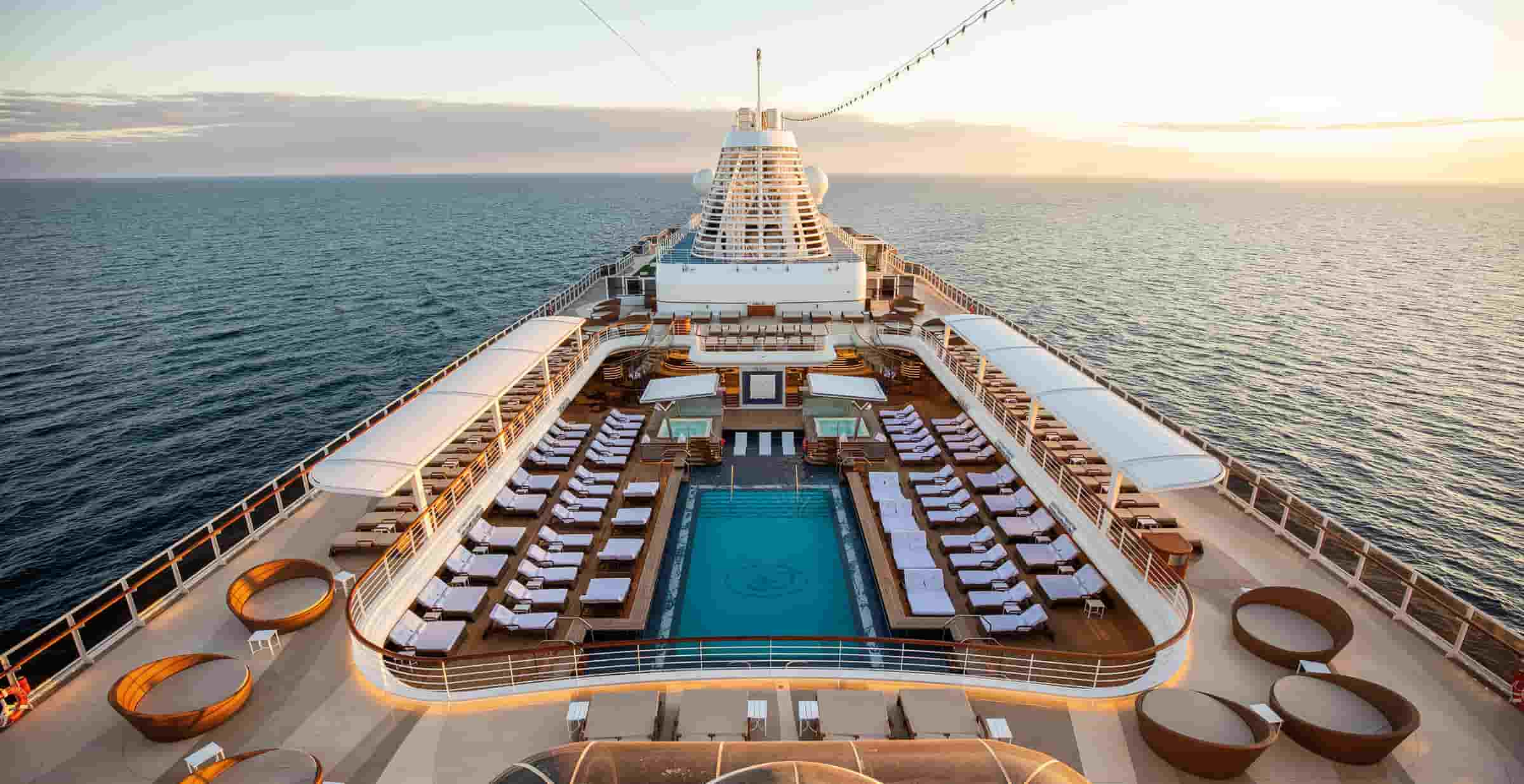
Cruise liners fly foreign flags to take advantage of laxer laws and regulations. Cruise lines can benefit from more advantageous regulations on employment, taxes, insurance, building, maintenance, and other areas when operating under a foreign flag.
Ships are global; over their lifespan, they frequently cruise between several dozen countries. It makes sense to register vessels in other nations that offer operational advantages due to their global character.
This approach is referred to as flying a “flag of convenience.”
Many large companies frequently register in one country while conducting their main operations in another.
Bermuda, the Bahamas, and Panama fly common foreign flags.
A brief history lesson: passenger ships are not permitted to sail under the American flag unless they are American-built, owned, and operated. This is due to the Passenger Vessel Services Act of 1886. In addition, all-American crews and adherence to US employment and tax regulations are requirements for vessels flying the US flag.
Furthermore, the only ships authorized to carry passengers directly between U.S. ports are those flying the US flag. Ships registered in foreign nations are therefore required to make a port call there before sailing back to the United States. This explains why so many ships go to Canada or Nassau.
The US government passed the laws to protect American shipbuilding jobs and keep out foreign competitors.
Nevertheless, operating cruise ships under the American flag is expensive due to these limitations.
The capacity to hire workers anywhere in the world is one of the primary reasons cruise ships operate under foreign flags.
Business Insider reports that the median yearly salary for employees on cruise ships is approximately $15,000.
Crew workers work infamously long hours with few days off, despite receiving free lodging and food.
The law requires US-registered ships to employ US residents.
On cruise ships, crew members come from all around the world. A large number of members are foreign nationals.
On the other hand, it is typical to discover that the officers, musicians, and performers are from nations like the US, Canada, or Europe, where salaries are higher.
Because it enables them to offer cheaper wages than they would otherwise pay U.S. residents, cruise lines use international crew members. A U.S. Department of Transportation study states that the cost of wages for ships flying the US flag is 5.3 times greater than that of ships flying foreign flags.
When you cruise, you won’t realize it, although employees in comparable occupations frequently receive varying pay depending on where they are from.
International crew members might also put in more hours with fewer breaks and vacation days.
Cruise Ship Smoking Policies: A Comprehensive Guide to Rules and Restrictions
The ability to save money on taxes is one of the main motivations for cruise ships operating under foreign flags.
Furthermore, it extends beyond the ships that operate under foreign flags. Many significant cruise lines establish themselves as foreign companies to benefit from reduced tax rates.
One of the biggest costs for cruise companies, along with personnel compensation, is taxes. Cruise lines can reduce their tax liabilities by millions of dollars by registering their ships in foreign nations.
Cruise companies use Section 883 of the Internal Revenue Code as a tool to exclude the gross income derived from the international operation of ships or aircraft from their overall gross income.
Stated differently, foreign-owned cruise lines are free from federal tax in the United States provided they meet certain ownership requirements, receive income from ship operations, and the registered country grants comparable exemptions to those applicable to American vessels.
The main cruise lines are registered at this location:
- The Royal Caribbean Group has its headquarters in Miami, Florida, and is registered in Liberia.
- Two lists exist for Carnival Corporation and plc. While Carnival plc is established in the United Kingdom.
- The corporation is headquartered in the United States and incorporated in Panama.
- Operating out of the United States, Norwegian Cruise Line has its registered office in Bermuda.
- The biggest private cruise line is MSC Cruises. Its headquarters are in Switzerland.
- Headquarters for Virgin Voyages are located in Plantation, Florida.
Insurance and Operating Expenses
It may surprise you to hear that there are advantages associated with foreign flags for the building, upkeep, and insurance of the vessels.
A cruise ship needs to be built in the United States to fly the American flag. This is problematic since American shipyards are not very experienced in building cruise ships. Ships for the military and commerce are the main products of US shipyards.
The majority of cruise ships are built in Europe.
The requirement that repair, servicing, and refitting be done at an American shipyard applies to warships flying the US flag as well.
A 50% ad valorem duty is levied on any repairs made in a foreign shipyard. This is an incredibly hefty charge, given that ship maintenance can run into the hundreds of millions of euros.
Emergencies could occur at any time, even if the owner of the vessel intended to have all maintenance and service done in American shipyards.
If it is not safe to sail back to America for repairs, a foreign shipyard will have to service the ship. The cruise line will be subject to a 50% ad valorem duty after completing foreign repairs.
Lastly, liability and insurance represent additional significant costs for cruise lines. Cruise lines must be ready for anything that might happen because thousands of guests and workers are on board at any given moment.
The Department of Transportation claims that the expense of liability and insurance is four or five times greater for vessels flying the US flag.
Marriages Regulations
Cruise lines aren’t simply infatuated with wedding costs. Travelers who are willing to spend more than usual make numerous cabin reservations during weddings. Consider drink packages, slot machines, in-room meals, and reservations for specialist restaurants.
It can be less expensive to have a wedding on a cruise ship than on shore. Furthermore, there’s no better backdrop, atmosphere, or wedding photos than those taken at sea.
You can choose between being married at the port or on the ship in the majority of cruise lines.
Cunard Line moved all of its ships’ registrations to Bermuda in 2011 so that their captains could wed couples while at sea.
In 2017, following Malta’s legalization of same-sex unions, Celebrity Cruises registered every ship there. Celebrity Cruises can allow same-sex weddings on board their cruise ships by utilizing Malta as a flag of convenience.
Cons of Using Convenience Flags
Floating under the radar of convenience has its consequences.
The coronavirus outbreak made abundantly clear the disadvantages of foreign flags.
The worldwide health crisis caused an industry-wide stop in sailing operations, forcing cruise lines to abruptly cease operations. For cruise operators—many of whom were struggling to make ends meet—the halt meant little to no income.
The government did not include cruise lines in bailouts and subsidies because they were foreign-owned, even though they assisted many other companies like hotels and airlines.
Foreign companies used the cruise lines to evade taxes and comply with US employment regulations, which also prevented them from being included in a bailout plan aimed at saving domestic companies.
To remain solvent during a nearly two-year break in sailing operations, cruise lines had to issue enormous amounts of shares, take on more debt, and scrap older ships.
You might also have noticed that cruise ships always dock in a foreign nation. Although this makes sense for itineraries in the Caribbean, the Mediterranean, and Australia, it may seem strange that sailings from Alaska to New England invariably stop in Canada.
One special provision of the U.S. Passenger Vessel Services Act prohibits foreign-flagged ships from carrying people from one U.S. port to another.
The Act states that only vessels flying the US flag may transport people directly between U.S. ports. Before returning passengers to the United States, ships flying foreign flags are required to make a stop at a “distant foreign port.”
Because of this, practically all cruise itineraries that leave from and return to the United States need to make a port stop abroad.
Before sailing back to the United States, Alaskan cruises make calls at Victoria or Vancouver, Canada, and New England sailings make calls at Bermuda or Eastern Canada.
During typical sailing hours, cruise lines experience a small inconvenience due to this need. But when the Canadian government decided to keep the ban on cruise ships in place, it meant that cruise ships could no longer go on itineraries that included Alaska.
The US Centers for Disease Control had revoked the “No Sail Order,” but Canadian ports were still off-limits to Alaskan sailings. Several popular cruise itineraries were essentially suspended until the prohibition on Canada’s ability to receive calls was lifted in 2022.
Top Tips and Methods for Preventing Seasickness on a Cruise
How Can a Cruise Ship Fly a Flag of Convenience?
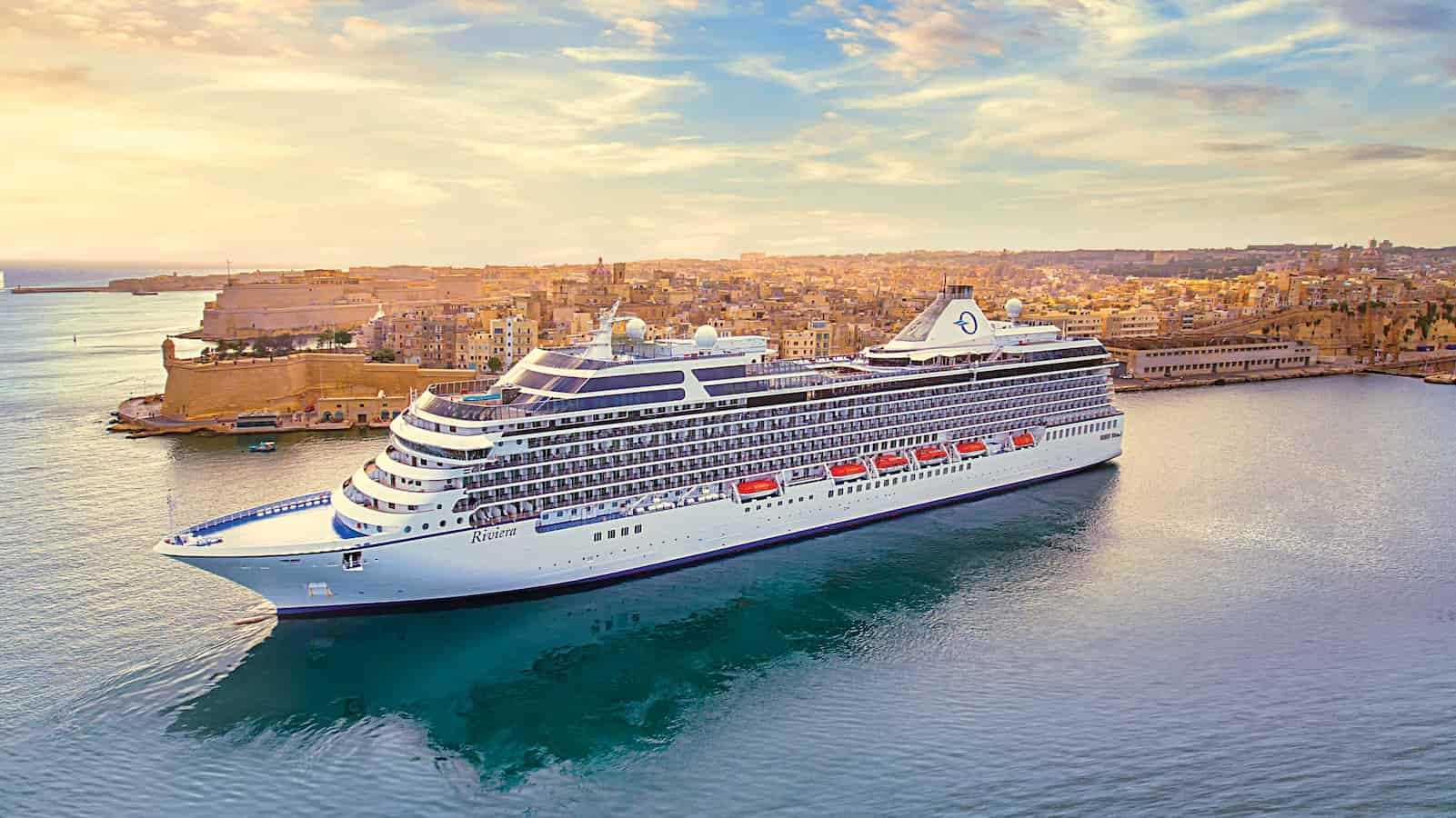
It is surprisingly easy to register and receive a flag of convenience.
Closed Registries
Ships flying the national flag must be registered in a closed nation.
Ship registrations with closed registries are the most prevalent. Most cruise companies avoid closed registries because of their restrictions and higher operating costs.
Open Registries
Nearly anybody can register a ship in a nation with an open registry, and there aren’t many limitations or rules.
In certain nations, registering a ship only requires completing an online form.
Are There Any Cruise Ships Flying the US Flag?
As of this writing, Norwegian Cruise Line’s Pride of America is the only cruise ship flying the US flag.
American Classic Voyages placed the initial order for the ship using loans from the US government. The Mississippi shipyard put Pride of America’s construction on hold after the owner filed for bankruptcy.
To recover its funds, the US government decided to sell the ship. Finally, NCL granted permission for construction to continue in Germany while flying the American flag.
The ship is excused from calling at foreign ports before returning to the United States. Because of this, Pride of America is the only cruise ship that operates Hawaiian sailings all year round.
When Did International Flags Begin?
The 1920s saw the first appearance of foreign-flagged ships. In 1920, prohibition laws went into effect, making it illegal for passenger ships to offer alcohol.
The law significantly reduced the competitiveness of American passenger ships compared to foreign cruise ships that were still permitted to sell alcohol to passengers.
Cruise ships register in foreign nations with permissive drinking regulations to avoid prohibition laws.
Beyond just providing booze, there were other advantages to sailing under a foreign flag. Ship owners had access to less expensive labor, less regulations, reduced taxes, and more.
Even after the lifting of prohibition in 1933, many cruise lines continued to fly foreign flags.
Prohibition served as a sort of catalyst for the rise of flags of convenience.
Related Posts
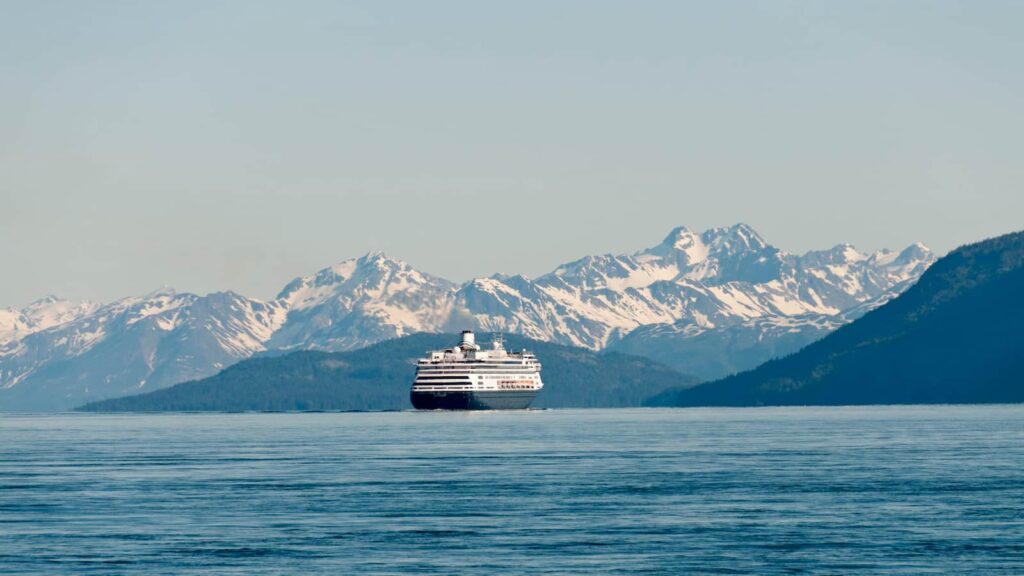
Best time to book a Cruise
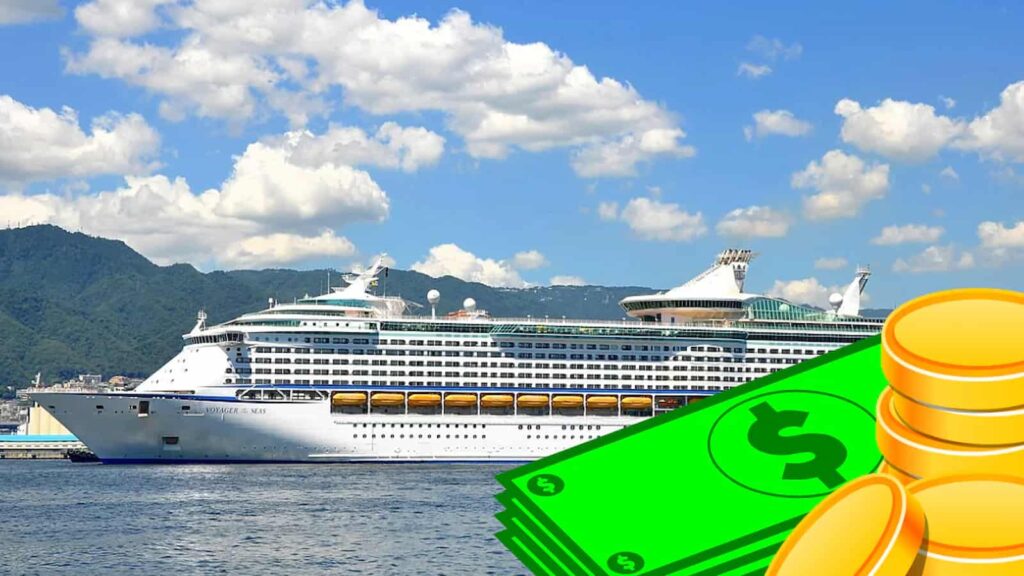
Cruise Ship Salaries: A Comprehensive Analysis
Leave a comment cancel reply.
Your email address will not be published. Required fields are marked *
Save my name, email, and website in this browser for the next time I comment.

What Are Ship Registries And Flag Of Convenience?
Every ship is required by international law to be registered in a country known as its flag state. Flag of convenience, the process of documenting a ship in a country other than the country of ownership, confers the nationality of the flag state to the registered ship. Ship registries have their own set of rules regarding the types of vessels they will accept for registration under their flag of convenience.
The decision of which flag to fly is therefore an important one for shipowners as they need to consider a range of factors, including the cost and regulations of each country. So why do some shipowners choose to register their vessels in Panama, Liberia, or the Marshall Islands?
Ships are registered in Panama, Liberia, and Marshal Islands due to lower taxes and minimal regulations, and lower conformity to formal shipping rules and standards which are often excessive, rigid, or redundant for ship owners and managers. These countries offer more convenient conditions and financial advantages in the shipping industry.
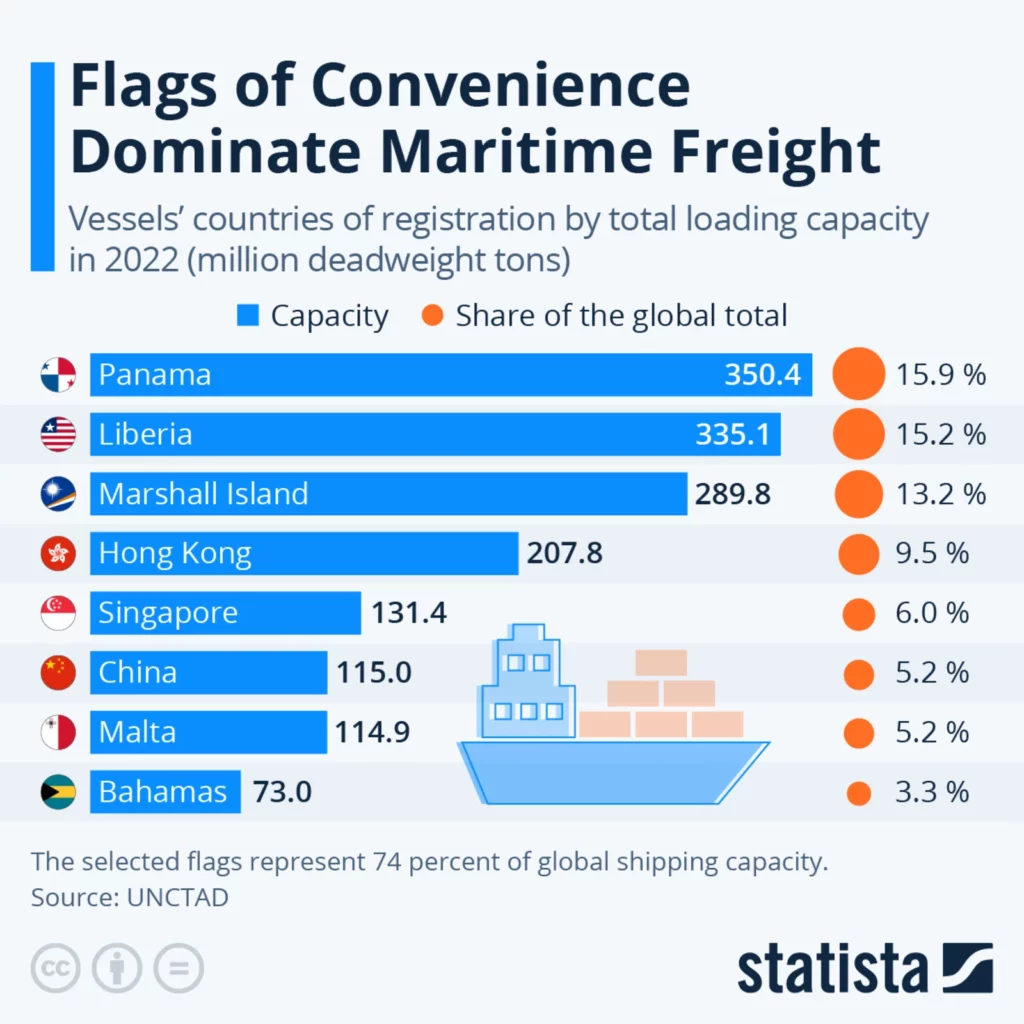
There are several reasons for registering a ship in Panama, Liberia, or the Marshall Islands. One of the most important factors to consider when selecting a flag for a vessel is the right to fly a national flag and the attachment of legal jurisdiction over the ship and crew .
A ship is automatically entitled to other rights if it possesses those two most important rights. This write-up will discuss the reasons why shipowners decide to register their ships in these countries.
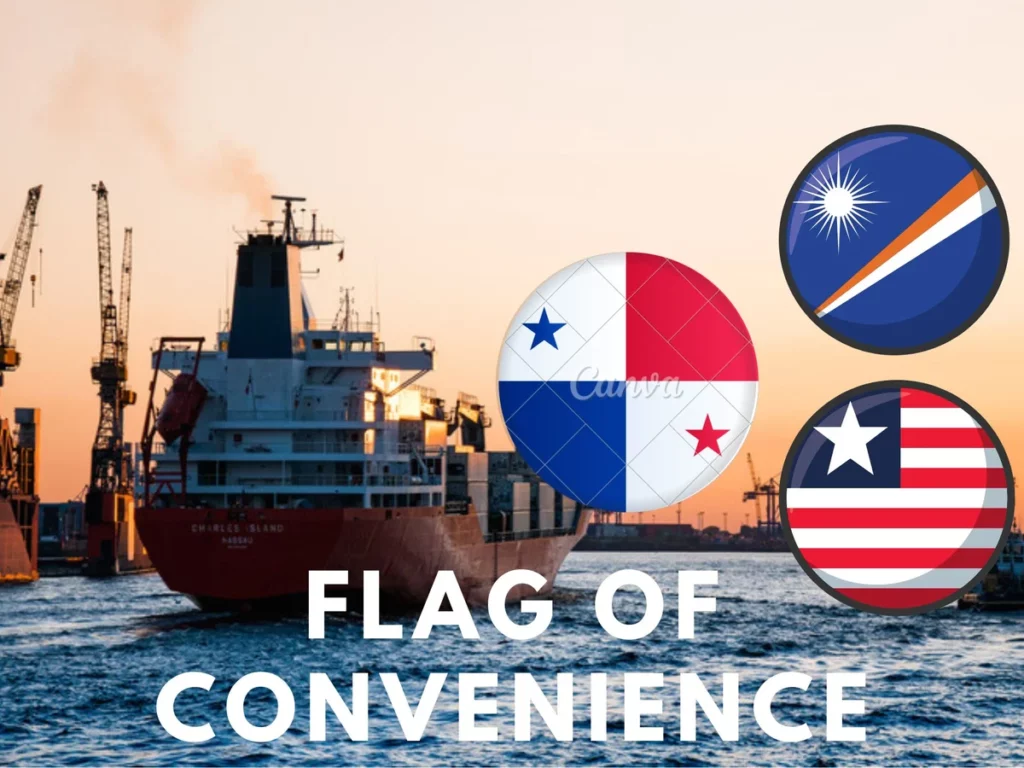
What is Ship Registration and Why It Is Needed?
When a ship is newly built, it is generally “registered” with a flag state. The flag state is the country that the ship is deemed to be a “national” of, and the country in which the ship’s owner is based.
Once a ship is registered with a flag state, it will generally continue to fly that flag throughout its working life. A ship may change flag state if its owner relocates to a different country, or if the ship is sold to an owner based in a different country.
Ship registration is the process of registering a ship in a specific state. A ship is registered in a specific country. The law of the state protects a registered ship. Details about the ship’s construction , ownership, and mortgage are entered into the flag states where the ship is registered.
Every State keeps a register in which the particulars of merchant vessels with that State’s nationality and flying its flag are recorded.
A country that registers a ship issues a “Certificate of Registration,” which can be used as a “ship’s passport,” allowing entry and departure from any port in the world.
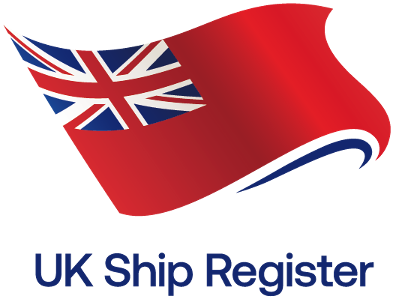
The primary reason for registering a ship is to establish nationality, secure title to a moveable asset, and, if necessary, to allow the ship to be used as collateral for a marine mortgage. For ships making international voyages, proving nationality is required.
Among other things, the right to diplomatic and naval protection, the right to fish in territorial waters, and the right to engage in coastal trade (Cabotage) are critical for the ship. This can make a difference in the shipping industry.
For example, a ship registered in Ghana has the right to offshore operations in Ghana and possibly in other parts of West Africa if a regional arrangement exists for such. Meanwhile, a ship registered in a port elsewhere on another continent will not.
There are several other reasons why shipowners might choose to register their ships with different flag states. Some flag states have more favorable taxation regimes for shipowners or offer other financial incentives.
Others have more relaxed regulatory regimes, which might be advantageous for ships engaged in certain types of trading. And some flag states are simply more reputable than others, which can be important for vessels engaged in international trade.
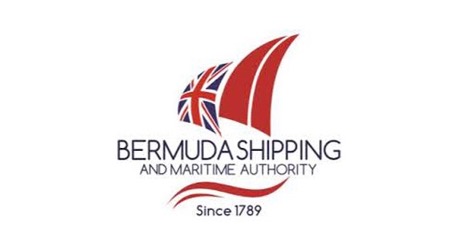
The Different Types of Ship Registries.
There are a number of different types of ship registries, and each has its own advantages and disadvantages. The three main types of registries are closed, open, and offshore.
Closed Registries.
Closed registries are only open to ships that are owned by citizens of the country in question. This means that there are typically more stringent criteria for ship ownership, i.e. exclusively citizens and companies incorporated in the country can qualify. This registry type is governed by an individual country as a national registry for the registration of their ships, flying their flag, owned, operated, and manned by nationals of that country. However, it also means that shipowners may not be able to take advantage of certain benefits, such as tax breaks, that are available in other registries.
Open Registries
Open registries, on the other hand, are open to any shipowner, regardless of citizenship. This makes it easier to register a vessel, and it also means that there are fewer regulations and red tape involved. Vessels registered under the Flag of Convenience (FOC) can often reduce operating costs or avoid the regulations of the shipowner’s country. They are also referred to as flags of convenience.
Second Ship Registers
Second Ship Registers are established by countries with Traditional Ship Registries to prevent ships from departing from their original registries and registering under Open Ship Registry. The Second Ship Registry was viewed as a viable alternative to Open Ship Registry, with the potential to mitigate the effects on traditional maritime countries.
They are often referred to as International Registries. An example is the Norwegian International Ship Registry (NIS) .
Operating parallel to the Traditional Ship Registry, a Second Ship Registry is established by legislation instrument or in a dependent state of the flag state. However, while attempting to combine the formal image of the Traditional Ship Registry, the Second Ship Registry offers significantly lower operating costs to shipowners
Off-shore Ship Registries.
The off-shore Ship Registry is slightly different from the Second National Ship Registry. They are operated by autonomous regions of a particular country or country considered as an overseas territory of a particular country. Off-shore Ship Registry may enjoy the protection of the home nation and mitigate the costs. An Off-shore Ship Registry example is The Isle of Man Ship Registry (IOMSR) operated by the UK.
Bareboat Registry.
An important ship registration rule is that a ship can only be registered in one country at a time. A ship, however, can be registered in a second state in some cases. The term “bareboat ship registry” refers to an instance when a ship already registered in one country’s registry in another country because of a bareboat charter agreement .
In such cases, the ship is suspended or temporarily dismissed from the primary registry or flagging-out registry and is then registered in the flagging-in state in the name of the bareboat charterer for the duration of the bareboat charter . Germany, Australia, Liberia, and Ghana are examples of countries that allow bareboat registration.

Why Ships Are Registered in Panama, Liberia, and Marshal Islands?
Ships are registered in Panama, Liberia, and the Marshal Islands for a variety of reasons. These countries offer a number of advantages to shipowners, including low taxes, relaxed regulation, and minimal red tape.
However, there are also a number of disadvantages to these registries. They have been accused of being “flag of convenience” registries, where shipowners can register their vessels in order to avoid stricter regulation and taxation in their home countries. This has led to concerns about safety, as well as environmental and labor standards.
There are also a number of financial advantages to registering a ship in one of these countries. The fees are often lower than in other countries, and there are often generous tax breaks for shipowners. This can make a significant difference to the running costs of a vessel. However, there are some disadvantages to these registries.
One of the biggest concerns is safety . These countries do not have the same stringent regulations as other shipping nations, and this has led to a number of serious accidents.
Another concern is environmental standards. These countries often have lax regulations when it comes to pollution and waste disposal. This can have a serious impact on the local environment, and on the health of those who live nearby.
Finally, there are also labor standards to consider. These countries often have very low minimum wage rates, and poor working conditions. This can lead to the exploitation of sailors, and to sub-standard workmanship.
Reputation – Another downside of registering a ship in Panama, Liberia, or the Marshall Islands is the potential damage to the vessel’s reputation. This is because these jurisdictions have been associated with a number of scandalous activities in the past, such as money laundering and drug trafficking.
Flags of Convenience and Port State Control
Flags of convenience (FOC) refer to the practice of registering a ship in a country other than that of the shipowner’s nationality, in order to take advantage of more favorable regulations, taxes, and labor laws. These flags are often chosen for their lower operating costs and greater flexibility, but they also raise concerns about safety and environmental standards.
Port state control (PSC) is the inspection of foreign ships in a country’s ports to ensure compliance with international regulations and standards. PSC aims to ensure the safety of ships and the protection of the marine environment, and it is conducted by the country where the ship is visiting.
The use of flags of convenience can make it more difficult for PSC officers to effectively monitor and enforce compliance with international regulations. Ships registered under FOCs may be less likely to comply with safety and environmental standards, and PSC officers may have difficulty obtaining information about the ship and its operations.
To address these concerns, the International Maritime Organization (IMO) has established the Port State Control MOU (Memorandum of Understanding) on Port State Control, which is a regional agreement among countries to conduct PSC inspections and share information about non-compliant ships. The MOUs also establish procedures for dealing with ships that are found to be in violation of international regulations.
Despite these efforts, the use of flags of convenience remains a contentious issue in the shipping industry. While they offer benefits in terms of cost and flexibility, they also raise concerns about safety, environmental protection, and the ability of PSC officers to effectively monitor and enforce compliance with international regulations. Read more here about Port state control and MOU .
Conclusion.
So, while there are some advantages to registering a ship in Panama, Liberia, or Marshal Islands, there are also some significant disadvantages. Shipowners need to weigh up the pros and cons before deciding whether this is the right option for them.

About the author
I worked as an officer in the deck department on various types of vessels, including oil and chemical tankers, LPG carriers, and even reefer and TSHD in the early years. Currently employed as Marine Surveyor carrying cargo, draft, bunker, and warranty survey.
Leave a Reply Cancel reply
Your email address will not be published. Required fields are marked *
Save my name, email, and website in this browser for the next time I comment.
Latest posts
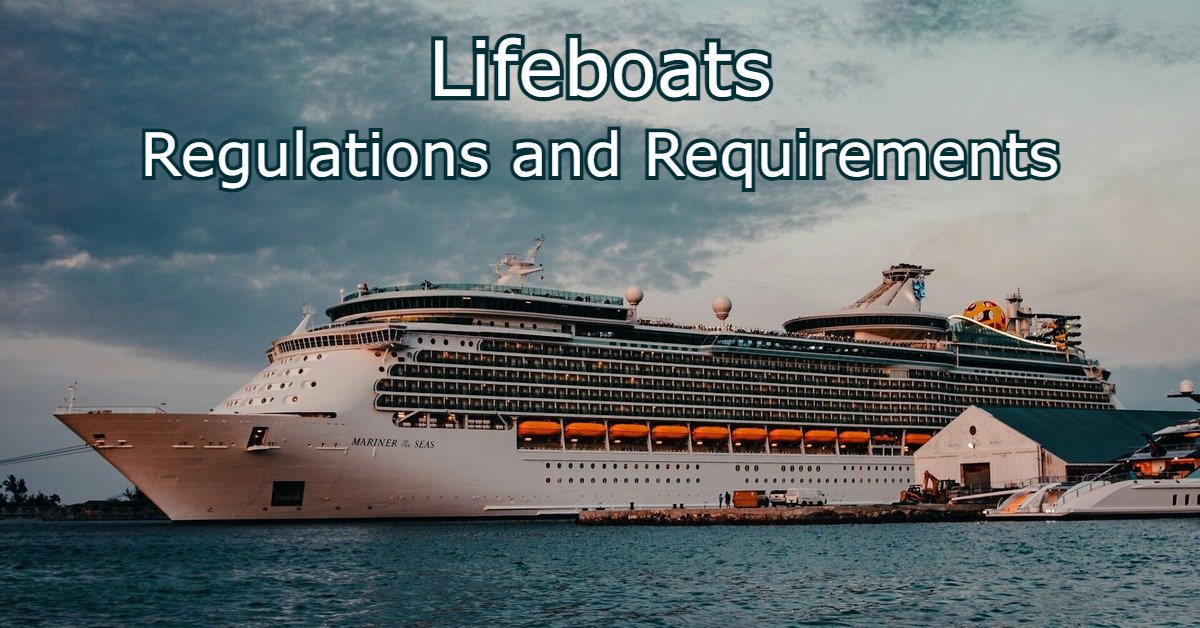
Lifeboats: Regulations and Requirements
In an emergency, portable vessels called lifeboats will get a ship’s occupants to relative safety. So how do lifeboats work?
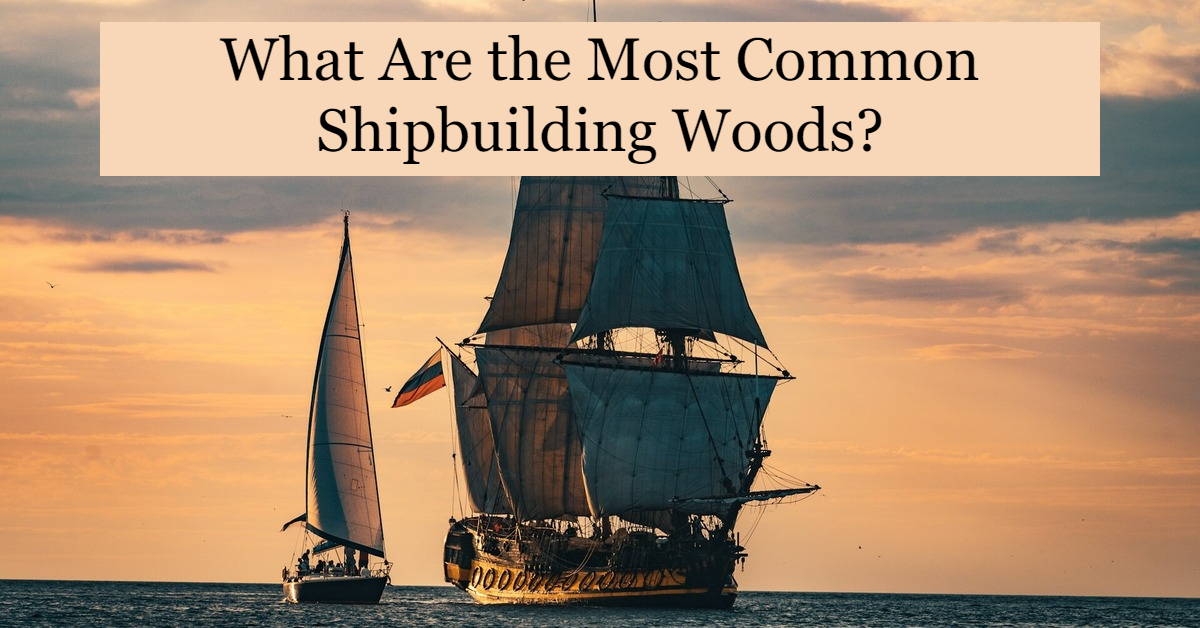
What Are the Most Common Shipbuilding Woods?
While shipbuilders have switched to other practices, wood still has a place in the maritime industry. The numerous types available mean manufacturers have myriad options, so here’s a guide on shipbuilding woods.
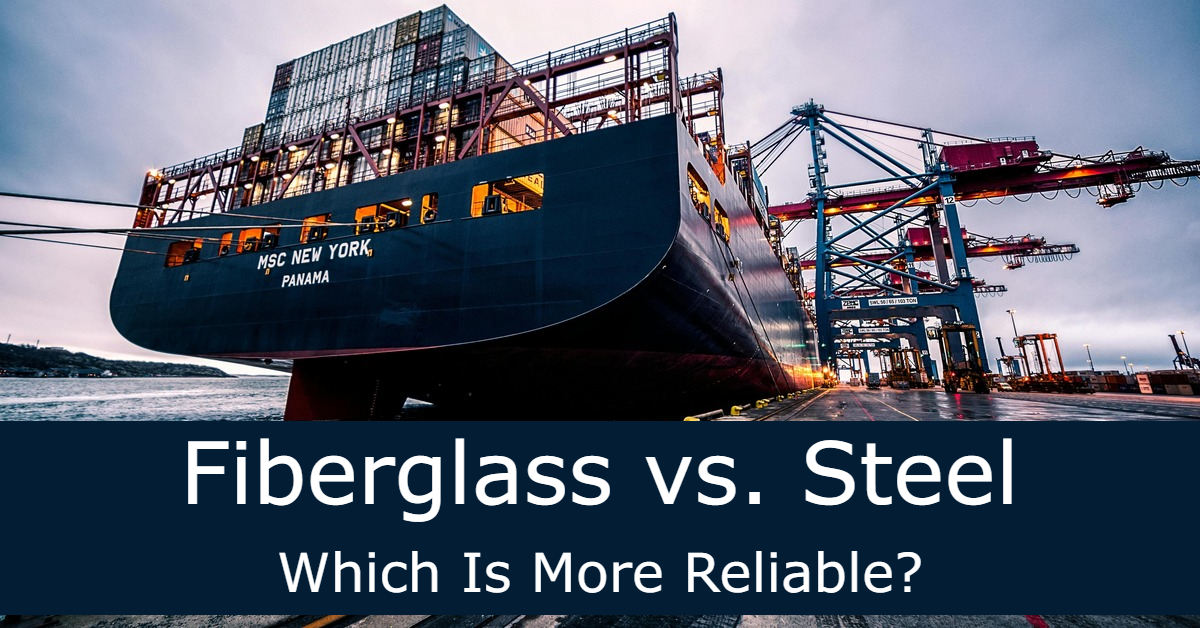
Fiberglass vs. Steel: Which Is More Reliable?
Shipping professionals should get the most from their investment, so which is more reliable: steel vs. fiberglass? Here’s how to determine the better option.
Neutral, Unbiased Reviews and Information about Cruises and Cruise Lines
- Follow Us on Facebook
- Follow Us on Twitter
Why Do Cruises Ships Fly Foreign Flags, or “Flags of Convenience”?
There is exactly one major cruise ship, Norwegian’s Pride of America, that is registered in the United States (i.e., that flies an American flag). Given the vastness of the American cruise market, this may come as a surprise. Why exactly are essentially all cruise ships registered in foreign countries, which means these cruise ships must fly a foreign flag, which is also known as a “flag of convenience”? Isn’t it somewhat strange that a cruise ship that is based at a U.S. port and owned by a U.S. company flies the flag of, say, Panama, Bermuda, or Malta, to pick a few popular countries to register a cruise ship in? Below we explain why so many cruise ships fly flags of convenience. We will also cover some of the complexities of what constitutes a cruise line or cruise ship’s “nationality.”
We’ll begin by making the obvious point that what counts as a “foreign flag” depends on the perspective from which you are examining the issue. From an American perspective, every cruise ship but the aptly named Pride of America is registered in a foreign country. From the Panamanian perspective, lots of cruise ships are domestically registered. The difference, of course, is that the major cruise companies primarily operate out of, and are headquartered in, the United States or Europe, and thus from an American or European perspective, most cruise ships are foreign-flagged.
Without getting unduly bogged down in the details, we’ll note that the situation is complicated, and it is somewhat hard to say what nationality a cruise line even is. For instance, Carnival Corporation , the largest cruise ship operator in the world that owns 10 cruise lines, is regarded as a British-American company. It is dual-listed company with headquarters in Miami, Florida and Southampton, England. However, it is technically incorporated in Panama, and the many ships they own spread across their 10 lines are not all registered in the same country. (A cruise ship can also be registered in multiple countries, to make matters even more complicated.) Even within a single cruise line, like the flagship Carnival Cruise Lines, ships are registered in Panama, the Bahamas, and Malta or a combination thereof, and they used to have ships registered in Liberia and Portugal as well. Carnival also owns Costa Crociere, which is called an Italian cruise line because it is headquartered in Genoa, and indeed all their ships are registered in Italy. (Some are registered in multiple countries, however.) So, are the ships in Costa’s fleet foreign-flagged, or are they domestically flagged because Costa is based in Italy? As we said, the situation is complicated.
As for why cruise ship fly “flags of convenience” in general, the answer is fairly simple: it makes business sense for the cruise line to do this. By registering in certain countries, cruise lines are able to pay lower operating costs or escape regulations imposed by the countries in which the ships primarily operate (e.g., the U.S.). The practice started in the 1920s, and the reason these early passenger ships registered in foreign countries perfectly illustrates, mutatis mutandis (Latin for “changing only those things which need to be changed”), why cruise lines still employ flags of convenience: in order to get around a ban of the sale of alcohol on U.S.-registered ships that was imposed during prohibition, ships simply re-registered in Panama. (For a relatively serious read on the complexities of maritime law from which this bit of trivia is pulled, you can peruse A Qualitative Study of Victimization and Legal Issues Relevant to Cruise Ships by Caitlin E. Burke at the University of Florida.)
Not surprisingly, utilizing flags of convenience can lead to problems, and cruise lines have been criticized for employing the tactic. For one, there is an obvious tendency to “race to the bottom,” to register in countries that have the loosest possible regulations that may not adequately protect, say, the environment or ship laborers. Cruise ships that are registered in a foreign country also operate under the laws of that foreign country, and this can lead to problems for passengers who want to address a problem with a cruise line legally. If an incident happens on the ship, what legal channels can be pursued, and in what country’s court system must any litigation take place?
So, to get back to our original question, cruise ships are registered in foreign countries primarily (and arguably exclusively) for financial reasons. Less regulations generally means more profit. That said, and as we noted above, there is some complexity inherent to the idea of a “foreign flag,” as the concept presupposes that every ship in some sense has a default nationality, and given the international nature of the cruise industry, this isn’t exactly the case. Regardless, it is obvious that essentially the entire cruise industry embraces the advantages of registering in a foreign country, even if “foreign country” is a little hard to precisely define.
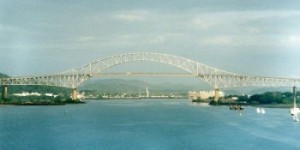
Leave a Comment
Recent articles.
- Sailing Safely in 2023: Assessing Cruise Risks from Covid to Piracy
- How to Find the Best Cruise Deals: Our Top 5 Tips
- The Best Cruises for Kids in 2023
- Here are Some Great Disney Cruises for 2023
- Cruises of Ireland and Scotland
- For Added Fun: Cruises with Casinos
- Try Cruises that Feature Celebrities for Extra Glitter!
- How To: Cruises with Kids
- When Will Cruises Stop Requiring Vaccines: Here’s What We Know
- 7 Ways to Keep Yourself Safe from Covid While on a Cruise
- What to Consider When Picking an Affordable Cruise
- Check Out Holland America’s Celebration Sale
- Three Luxurious Ponant Itineraries
- Fire Erupts on Carnival Freedom
- Why You Should Take a Great Lakes Cruise
Seach site:
© Copyright 2024 ISIPP Publishing
Hoisting the Flag: A Closer Look at Flags of Convenience
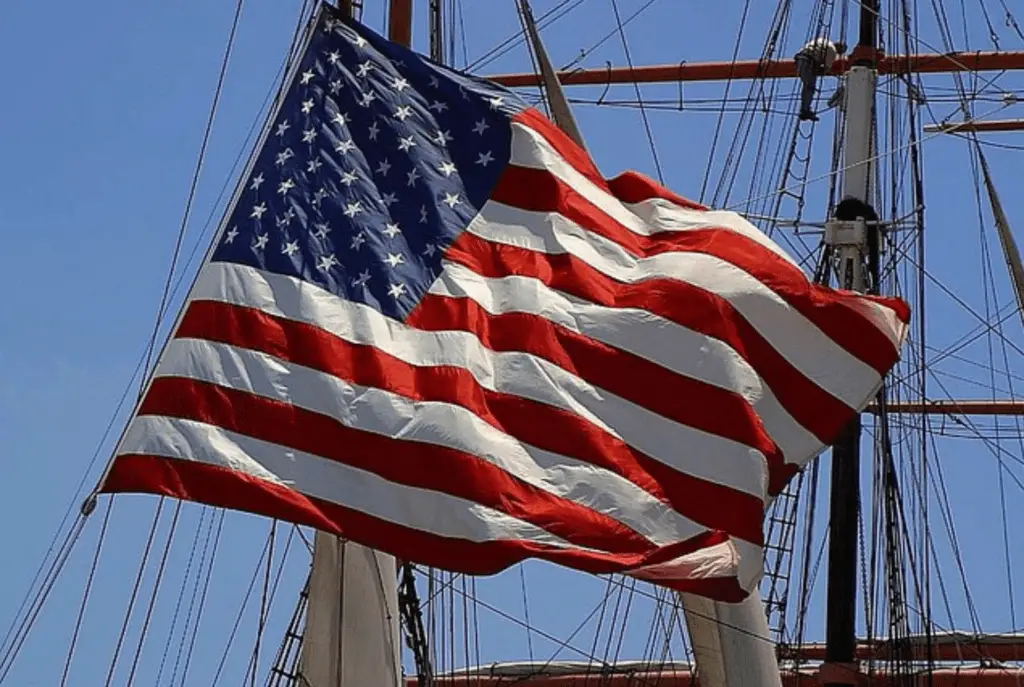
What are Flags of Convenience?
Flags of Convenience (FoCs) are a controversial practice in the shipping industry.
In simple terms, a Flag of Convenience refers to a ship owner registering their vessel in a country other than their own.
These countries, known as flag states, offer attractive benefits to ship owners, such as lower taxes, less stringent regulations, and minimal oversight.
Table of Contents
Does a ship have to be flagged?
The answer is yes to all commerical ships . Flagging a ship refers to the process of a ship owner registering their vessel with a particular country.
This registration provides the ship with a nationality and legal status, allowing it to operate under the jurisdiction and protection of that country.
The flag state is responsible for enforcing regulations, ensuring compliance with international standards, and maintaining the safety and environmental standards of the ship.
What does it mean when a ship is flagged?
When a ship is flagged, it means that the ship owner has registered their vessel with a particular country.
Benefits and Drawbacks of Flags of Convenience
When examining the practice of Flags of Convenience (FoCs), it’s important to consider the advantages and drawbacks that come with it.
- One of the main advantages of FoCs is the potential for reduced operating costs.
- By registering a vessel under a flag of convenience, ship owners can take advantage of lower taxes and lax regulations, resulting in significant cost savings.
- FoCs offer ship owners the flexibility to register their vessels in different countries, depending on their operational needs.
- Registering a vessel under a flag of convenience can provide access to a wide range of global markets.
- One of the main criticisms of FoCs is the potential for exploitation and substandard practices.
- Flag states with minimal oversight may not enforce adequate safety standards, leading to accidents, environmental damage, and compromised crew welfare.
- FoCs have been criticized for enabling ship owners to evade regulations and labor laws.
- FoCs can create a lack of accountability in the shipping industry.
What are the top 10 ship registries?
The top 10 ship registries globally include Panama, Liberia, Marshall Islands, Singapore, Malta, Hong Kong, Bahamas, Cyprus, Greece, and Norway.
Panama, Liberia, and the Marshall Islands jointly accounted for 44.3 percent of the world fleet in 2022.(based on www.statista.com)
Each of these countries offers various benefits and advantages for ship owners, such as favorable tax schemes, strong legal frameworks, and efficient registration processes.
Panama, for example, has long been a popular choice for ship owners due to its favorable tax regime and simplified registration process.
Liberia, on the other hand, boasts a strong legal framework and a robust maritime administration that ensures high safety and operational standards.
The Marshall Islands is another popular choice, known for its low registration fees and efficient services.
Singapore and Malta are also attractive options, offering a combination of tax benefits, strong legal frameworks, and strategic locations.
What country has the most flagged ships?
Panama takes the top spot. Base on www.statista.com that In 2020, some 9,596 vessels sailed under the flag of Panama.
This Central American nation is renowned for its favorable tax regime and streamlined registration process, making it an attractive choice for ship owners worldwide.
Panama’s strategic location, connecting the Atlantic and Pacific Oceans through the Panama Canal, further adds to its appeal as a flag state.
- Who Can Own a Cargo Ship? (Explained)
- Ro-Ro Passenger Ships vs Ro-Ro Cargo Ships
- Top 10 Busiest Cargo Ports in the World: A Closer Look
- Cargoship vs Passenger ship: 10 Main Differences(Explained)
What do differenct color of flags on a ship mean?
The color of a flag on a ship holds significant meaning and communicates important information to other vessels and port authorities.
Each color has a specific purpose and conveys different messages.
Red flags indicate a potential danger or emergency situation on board. It signals that immediate attention or assistance may be required.
Blue flags typically represent a vessel engaged in fisheries or fishery-related activities. It serves as a signal to other ships to exercise caution and be aware of the fishing operations.
Green flags are used to indicate that a ship is carrying a pilot or harbor master. Pilots are professionals who guide ships safely through narrow passages or unfamiliar waters.
The green flag notifies other vessels that a pilot is on board and that they should follow their instructions.
Yellow flag
Yellow flags often symbolize quarantine or disease control measures.
They are raised when a ship is suspected or confirmed to have a contagious disease on board.
This signals to port authorities that special procedures need to be followed before the ship can enter the port.
White flags are commonly used to signal surrender or truce during a conflict or to request a ceasefire. This non-threatening color indicates a willingness to negotiate or a desire for peace.
In maritime situations, a white flag may also be used to indicate that a ship is carrying or requesting medical assistance.
It is a universal symbol that communicates the need for aid and medical attention.

Orange flag
Orange flags are used to signal that a ship is carrying dangerous cargo. This could include flammable materials, toxic chemicals, or explosives.
The orange flag serves as a warning to other vessels to maintain a safe distance and take appropriate precautions when in the vicinity of the ship.
Black flags are not commonly used on ships and do not hold a specific meaning. However, historically, black flags were often associated with pirate ships.
The black flag represented a symbol of fear and intimidation, signaling to other vessels that the ship flying it was engaged in piracy and would not hesitate to attack.
Nowadays, black flags are not recognized as an official maritime signal and are more commonly associated with symbolic representations or historical references.
What happens if a ship has no flag?
If a ship has no flag, it is considered stateless or “without nationality.”
Port authorities may deny entry to a ship without a flag, preventing it from accessing essential services, such as refueling or unloading cargo .
Additionally, a ship without a flag is unable to participate in international trade or engage in commercial activities. It also faces difficulties in obtaining insurance coverage or securing financing for its operations.
Can a ship have no flag?
Certain types of ships do not require a flag for registration.
One example is naval vessels, such as warships and military submarines.
These ships are typically operated by governments and do not need to comply with the same regulations and standards as commercial vessels.
They are considered sovereign entities and are exempt from many of the requirements that apply to other ships.
Another type of ship that may not require a flag is a small recreational boat.
These are usually used for personal use or leisure activities and are not engaged in commercial operations.
In some cases, these boats may be exempt from flag registration, although they still need to adhere to safety regulations and local boating laws.
Additionally, certain types of non-self-propelled vessels, such as barges or floating docks, may not need to be flagged.
These vessels are typically used for specific purposes, such as transporting cargo or providing temporary infrastructure, and may not fall under the same regulatory framework as traditional ships.
- Digital Archives
- Order a Copy

Americans pay for cruise industry’s flags of convenience
The bad news? Cruising now comes at even higher cost for the U.S. Merchant Marine and the broader U.S. maritime industry.
Pre-pandemic, Americans accounted for nearly 50 percent of the almost 30 million worldwide cruise travelers. Yet of the 323 ocean passenger ships, only one, Pride of America , is registered in the United States. This results in a potential loss of roughly 162,000 good-paying American jobs. More egregious is that most large cruise lines are American-owned and/or based in the U.S. – serving mostly American passengers yet not employing American mariners. I often wonder how many of those 15 million Americans planning on cruising would be appalled to know these facts.
The glaring question is — why?
Instead of registering in the U.S., major cruise lines register their ships in another country, often in the developing world. This is called “flags of convenience (FOC),” which is a contentious maritime industry practice of allowing vessel owners to avoid regulations and taxes and reduce labor costs by hiring cheaper foreign mariners, often with questionable credentials.
Cruise lines utilizing foreign-flagged ships may argue the question of mariner competency is moot with the advent of the International Maritime Organization’s International Convention of Standards of Training, Certification, and Watchkeeping (STCW). What these same FOC cruise lines will not tell you is that each flag state has the ultimate authority to administer, certify, and enforce STCW. As such, a flag state with limited resources may not have the training assets or personnel to ensure proper mariner certification. Complicating matters further, many of the same foreign flag states are ripe for corruption and graft. Together, these raise questions about the training and skills of mariners working on foreign-flagged cruise ships.
Could passenger safety be impacted?
Use of FOC ships allow American-owned cruise lines to side-step American labor laws. Mariners working on foreign-flagged cruise ships also lack the pay, benefits, and labor protections available to their American counterparts. A typical able seaman on an FOC ship will earn about $1,500 a month for 12 hours of work every day, with little to no overtime. The same able seaman typically must sign a contract for very long stretches of work, with pay contingent upon completing the tour. An able seaman aboard a U.S.-flagged ship earns a base monthly salary of about $3,750 for an eight-hour workday — not including overtime.
Finally, these companies registering in other countries benefit by building ships overseas, rather than in the U.S. This arrangement deprives American shipyards of lucrative contracts and threatens the nation’s long-term security. With fewer big ships to build, the expertise needed to build large ships used in national defense will atrophy. Then what happens? I dread to think of having to depend on FOC ships to ferry U.S. military personnel and supplies in times of national emergency or war. Think it can’t happen? Think again. During Operation Desert Storm 30 years ago, the U.S. did not have sufficient sealift capability, and had to ask FOC ships to carry the fire to the fight. Many refused, and since they were registered elsewhere, they could not be ordered, commandeered, or compelled to sail into a war zone.
Why is this year, of all years, going to be worse?
The Passenger Vessel Service Act (PVSA) is the answer. Originally passed in 1886 to help protect our new and fledgling maritime industry — which ironically needs that protection now more than ever — it states, “No foreign vessel shall transport passengers between ports or places in the United States, either directly or by way of a foreign port, under penalty of $762 for each passenger so transported or landed.” Accordingly, this is the reason FOC cruise ships normally depart a U.S. port and then head directly to a foreign port before arriving at a subsequent U.S. port. FOC ships plying Alaskan waters would normally begin voyages in a Canadian port, typically Vancouver, British Columbia, and then continue to Alaska, thus complying with the PVSA. Canada’s decision in February to defer the resumption of large cruise travel until early 2022 effectively turned the Alaskan Cruise industry upside down. Now, the big American-owned and American-based cruise lines with FOC ships can no longer use a Canadian port “escape clause” to comply with the law.
Not deterred, the large cruise lines lobbied U.S. politicians for a waiver from the PVSA for their FOC ships. And on May 25, 2021, President Joe Biden waived the PVSA by signing the gently named Alaskan Tourism Restoration Act. The law temporarily allows FOC cruise ship to sail directly from Washington state to Alaskan ports without the need for that pesky stop in Canada. But wait, what about the smaller U.S.-flagged Alaskan cruise ships? Those are the American cruise ships with several hundred passengers versus the jumbo FOC ships with thousands of passengers. Their feature draw, and thus a key to their business model, is the benefit to sail from one U.S. port directly to another with no need to sail foreign, because these tenderfoot cruise ships are actually American; built in America and operated by U.S. merchant mariners. With the stroke of a pen, the FOC ships continue to employ foreign non-union labor and avoid paying U.S. taxes while benefitting as if they were American ships.
Unfortunately, there was one other option that apparently nobody raised. Instead of waiving the PVSA, the government could have required the colossal cruise lines to re-flag in the United States. Of course, in this scenario, cruise lines would then have to hire Americans to operate these “new” U.S.-flagged ships. Oh, and by all means, pay their mariners a living wage and permit unions like the rest of America demands. And I almost forgot to mention, yes, the cruise lines would have to pay their taxes; another annoying obligation that every American must satisfy.
This would not be precedent setting. In December 1986, after seeking American permission, Kuwait temporarily re-flagged its supertankers as U.S. vessels to be protected during the Iran-Iraq War. These ships employed unionized U.S. merchant mariners, abided by the U.S. labor laws, and paid their taxes.
The same argument, in the way of both economic and national security, most certainly could have been made regarding the Alaskan cruise industry and the PVSA. Regrettably this did not occur. As of this writing, Canada has eased its pandemic response cruise ship ban from Feb. 28, 2022, to Nov. 1, 2021. But has the damage to the U.S. Maritime Industry already been done? That remains to be seen. •
Capt. Sean P. Tortora is a Master Mariner with 25 years at sea having commanded many different vessels including tankers, general cargo, break bulk, ammunition, ocean towing and salvage, and special mission, with his specialty of underway replenishment vessels. He is an associate professor in the Department of Marine Transportation at the U.S. Merchant Marine Academy. He is the author of the novel, Steaming to Djibouti and textbooks, Study Guide for Marine Fire Prevention, Firefighting, and Fire Safety , as well as, Study Guide for Bridge Resource Management. The views expressed in this article are those of the author and not those of USMMA, MARAD, DOT, or the U.S. government.
By Professional Mariner Staff

- < Previous
Home > CELS > Marine Affairs > MAF_FACPUBS > 154
Marine Affairs Faculty Publications
Cruise ships, covid-19, and port/flag state obligations.
Andrew Tirrell , University of San Diego Elizabeth Mendenhall , University of San Diego
Document Type
Date of original version.
The COVID-19 pandemic has exposed additional weaknesses of the already troubling “flag of convenience” practices under international law; the passenger cruise industry was especially impacted. Most cruise ships under distress from the pandemic received little aid from their flag states, and many vessels were denied entry into ports of nonflag states (regardless of whether an outbreak had been documented onboard). States and vessels lacked clear guidance around their rights and responsibilities under the extraordinary circumstances, resulting in a less efficient response to a dangerous situation. This article reviews the current status of international law concerning port and flag state duties to distressed vessels, and suggests the creation of flag state medical liability to help clarify decision-making during future health crises.
Publication Title, e.g., Journal
Ocean Development and International Law
Citation/Publisher Attribution
Tirrell, Andrew, and Elizabeth Mendenhall. "Cruise Ships, COVID-19, and Port/Flag State Obligations." Ocean Development and International Law 52, 3 (2021). doi: 10.1080/00908320.2021.1913323 .
Since April 21, 2023
https://doi.org/10.1080/00908320.2021.1913323
Advanced Search
- Notify me via email or RSS
- Collections
- Disciplines
Author Corner
- Submit Research
OA icon designed by Jafri Ali and dedicated to the public domain, CC0 1.0.
All other icons designed by Adrien Coquet and licensed under CC BY 4.0.
Home | About | FAQ | My Account | Accessibility Statement
Privacy Copyright
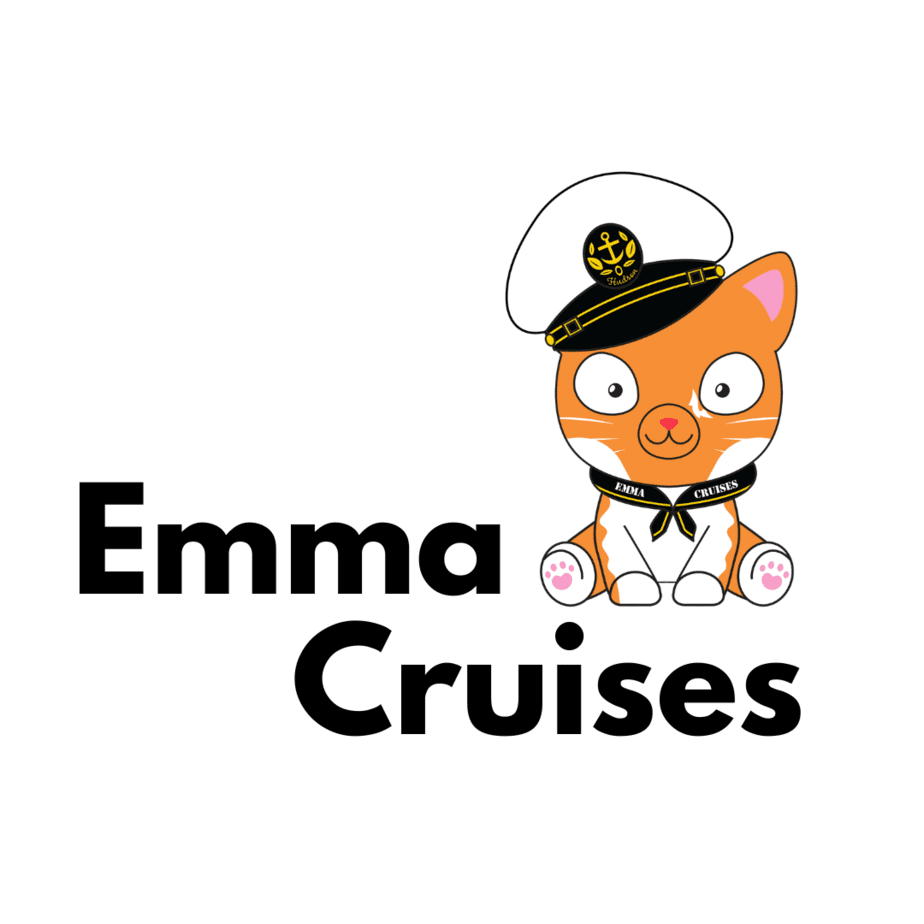
Almost All Cruise Ships Fly Foreign Flags – Here Are Three Reasons Why
If you’ve ever been on a cruise or are considering taking one you may be wondering why almost all ships are registered to foreign ports.
There are a number of reasons for doing this which we will discuss in this article.
Flying a foreign flag is known as having a Flag of Convenience, the country’s flag that is being used is called “The Flag State.”
90% of cruise ships that call at a US port have a foreign flag according to the Cruise Line International Association. – source.
Why Do Cruise Ships Fly Foreign Flags?
Cruise ships fly foreign flags in order to benefit from laws and regulations in other countries.
Flying a foreign flag affects employment, taxes, and many other regulations that may be favourable for the cruise line.
It is relatively easy to register a ship in a foreign country and the practice has been carried out for decades.
The most popular countries for cruise ships to register their flags to are
- The Netherlands
A ship’s registration can be seen on the aft below the name. Below is a photo of Royal Caribbean’s Symphony of the Seas which is registered in Nassau.
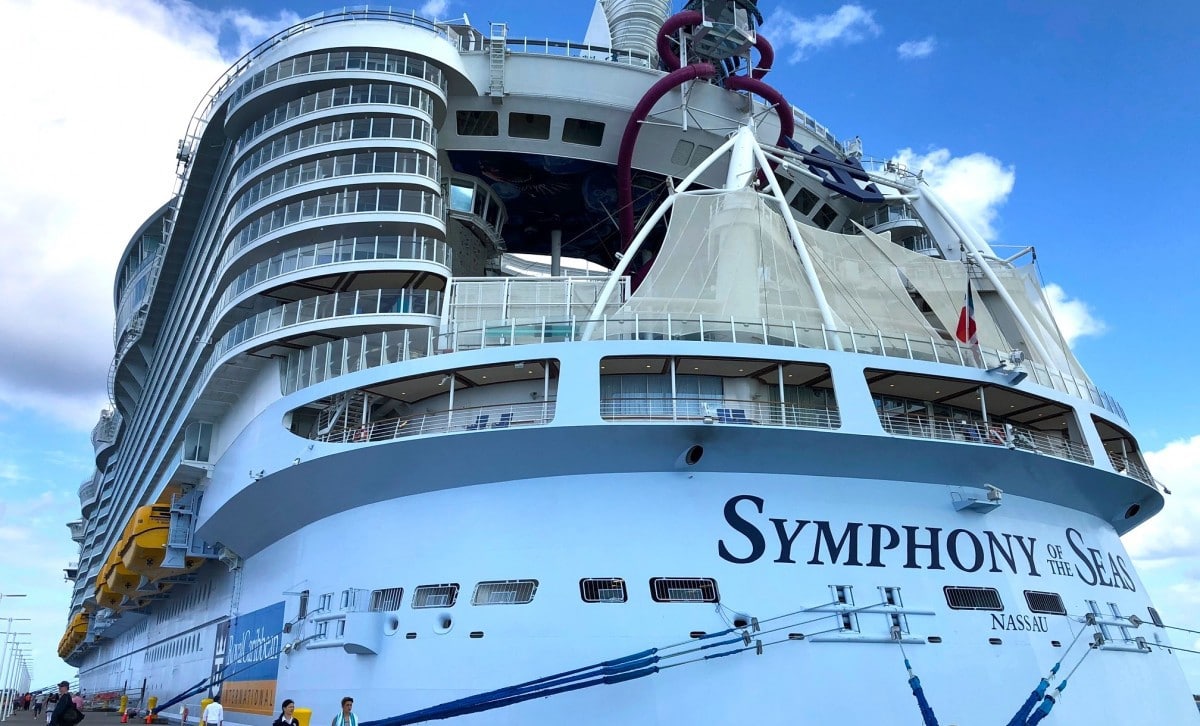
I recently took a cruise on Symphony of the Seas, to find out all about this huge ship, watch the video below:
Why Do Cruise Ships Have To Be Registered To A Country?
Every ship is required by law to be registered in a country. The laws of the country in question are used if there are any private maritime disputes.
The country to which the ship is registered has control over the ship in regard to things like regulations and procedures.
They’re also in charge of regulations in regards to pollution although the cruise lines do take this very seriously and consistently perform better than the minimum requirements.
The countries where the ships are sailing also are able to monitor and enforce regulations.
How Can Cruise Ships Fly a Foreign Flag?
It’s surprisingly easy for a cruise ship to fly a foreign flag.
Closed Registries
Most countries have closed registries which means that the ship usually has to be owned and/or constructed by the country in order to fly the flag.
This also affects employment with a certain amount of the employees working onboard having to be from that country.
Open Registries
Some countries have what is called “Open Registries.” This means that almost anybody can register a ship to the country in question and in some situations, you’re able to just apply online.
Some countries that have had open registries in the past have since changed to closed registries, due to problems with crime.
There are still plenty of countries with Open Registries, where it’s relatively easy to register a ship there if you’d like to.
Both of the Carnival ships shown below are registered in Panama.
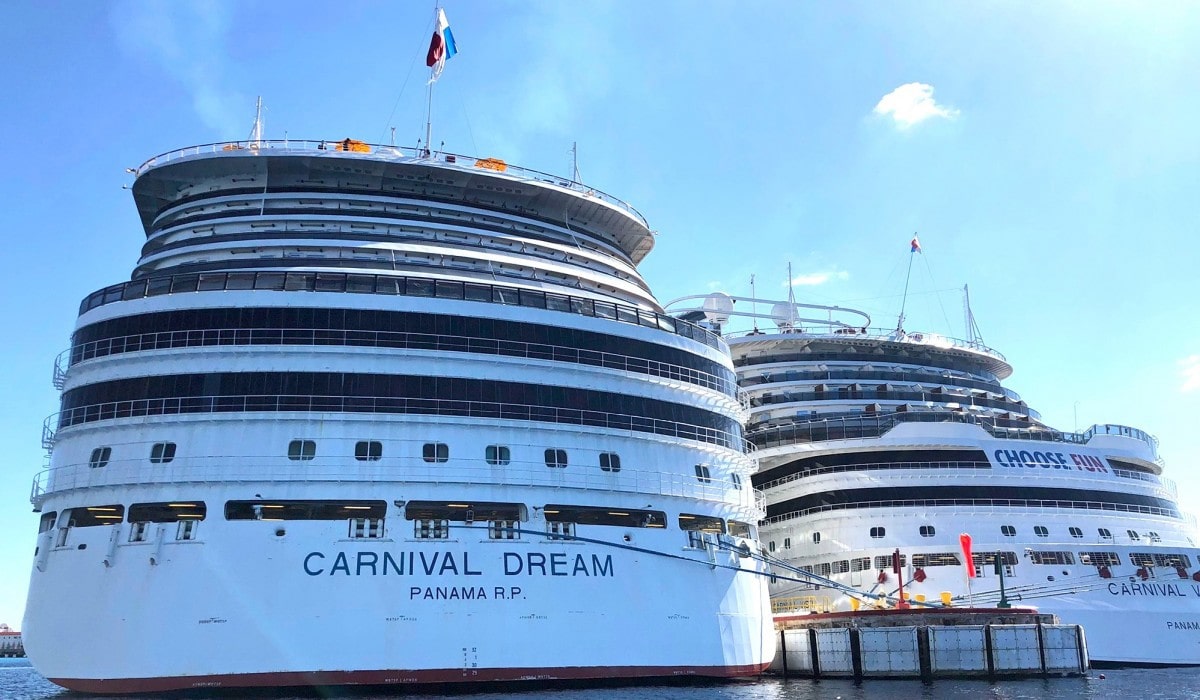
One of the main reasons that a cruise ship would sail under a foreign flag is because it gives them the ability to hire employees from countries that have lower wage requirements.
On the majority of cruises, you’ll find that the crew are from places like the Philipines, China, or India.
Ships that are registered in the Bahamas and Panama have the highest number of crew members from the Philippines.
There are also some tax benefits for people from the Philipines who work on cruises. Providing that they work on an overseas vessel that operates exclusively in international trade.
What does this mean for the crew onboard?
- The cruise line can pay lower wages than would be paid to US citizens.
- The crew can be made to work longer working hours.
- The crew can be given fewer breaks/less leave.
You’ll often find that on a cruise the majority of waiters, room stewards, and bartenders will be from countries other than the US.
However, you may find musicians, performers, and officers from the US or other parts of Europe with higher wage requirements.
It isn’t uncommon to find people with similar or the same jobs being paid different amounts based on the country that they come from.
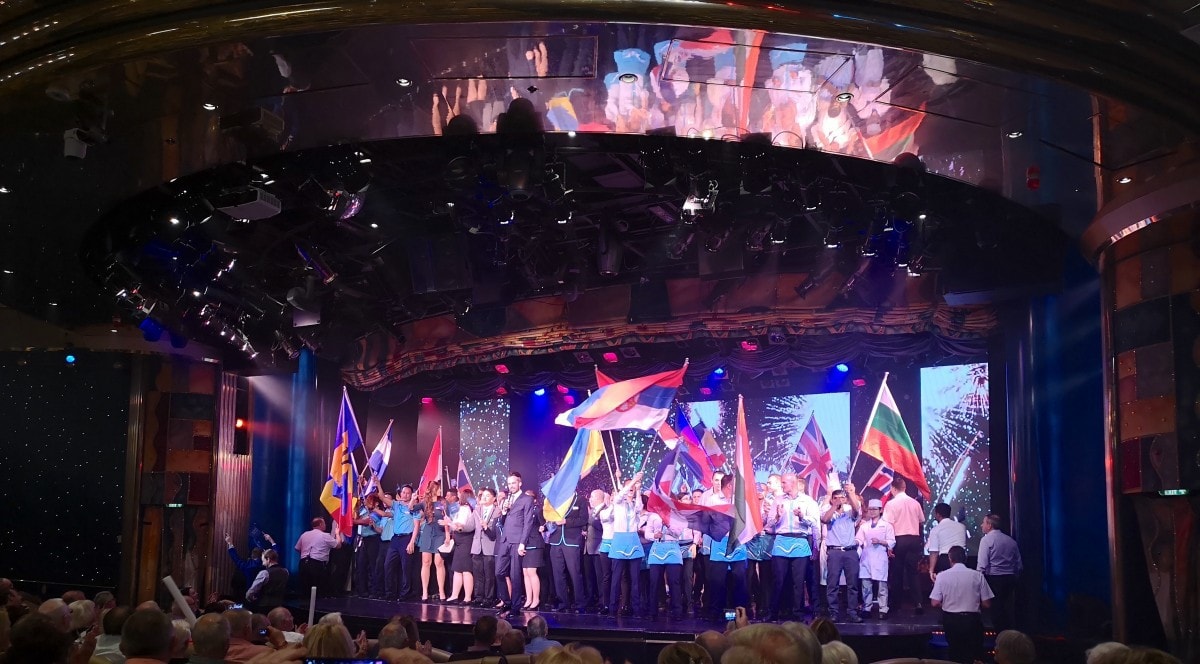
One of the biggest reasons that a cruise ship could fly under the flag of another country is that they have to pay tax under that flag rather than the place where they actually operate.
This means that cruise ships sailing in the US, but registered to another country, don’t pay US taxes in the same way as they would if they were registered there.
The savings can be HUGE and for some large companies, this can easily run into the millions of dollars.
After the Coronavirus crisis of 2020, many people thought that cruise ships shouldn’t receive any bailouts or help from local governments because they had chosen to register in foreign countries.
Weddings/Regulations
There are also other reasons for registering a ship in another country such as getting access to things such as being able to conduct weddings at sea.
Cunard registered all of its ships in Bermuda in 2011 which meant that the captains could marry couples at sea.
Being able to host weddings is a big moneymaker for cruise lines.
It’s not only the cost of the cruise that is good for the cruise line but also the fact that the wedding party will usually book out a number of cabins and will normally pay for other things above and beyond the base cost of the wedding.
Many people get married at sea because it can be better value than getting married on land. It’s possible to get married both on the ship and also in port on a port day.
Weddings do vary by cruise lines and some even offer vow renewal ceremonies too.
Celebrity Cruises recently registered their ships in Malta so that they could conduct same-sex marriages on board, something that they couldn’t do before they changed flag.
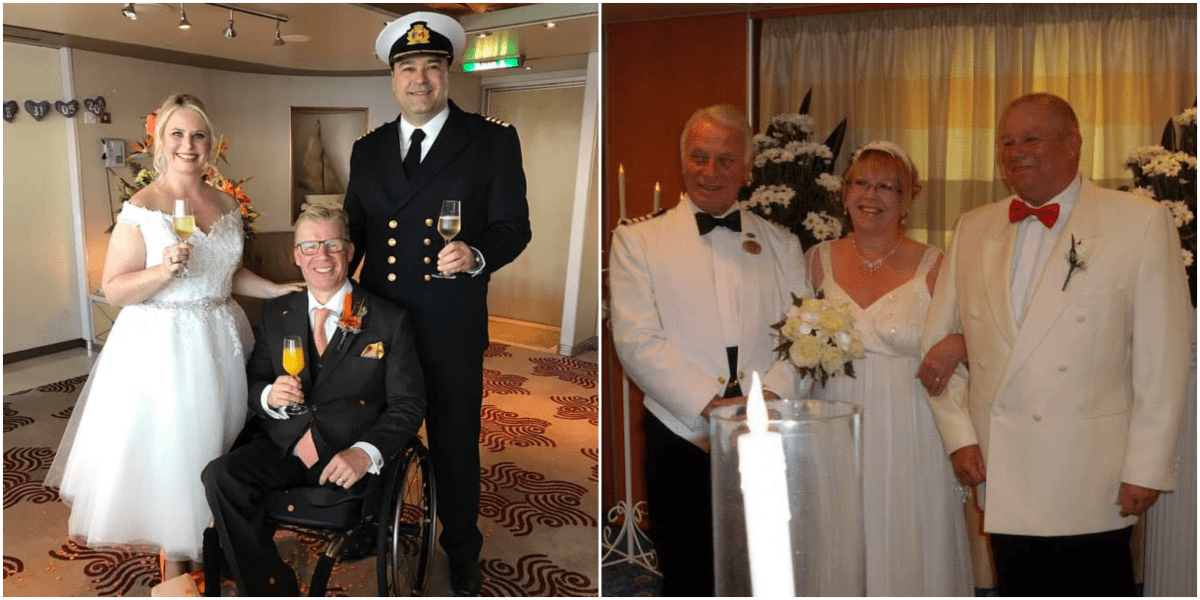
Why do Cruise Ships Not Fly The American Flag?
There are a number of reasons why so few cruise ships are registered in the US.
It isn’t just because of the benefits listed above but also because it is much easier for a cruise ship to be foreign-flagged. The American flag has very few benefits for cruise lines.
Are There Any US Flagged Ships?
There is one cruise ship flagged in the US. Norwegian Cruise Line’s Pride of America.
She cruises exclusively around Hawaii and has to adhere to US labour laws and taxes.

Registering a Ship in the US
For a ship to be US-flagged, they ship must have been built in a US shipyard.
The majority of large cruise ships are built in either Italy or Germany, while US shipyards build military and cargo vessels.
Originally ordered by American Classic Voyages using US government loans, construction on Pride of America started in Mississippi but was halted after ACV filed for bankruptcy.
To sell the unfinished ship & get their money back, the US government and NCL negotiated a deal. NCL was granted an exemption to finish the ship in Germany and still be registered under the US flag.
The ship also has to pay the US minimum wage and have a certain percentage of US crew members onboard.
NCL is also responsible for paying their US crew overtime, which can be substantial for the hours cruise ship crew typically work.
This can be VERY expensive when compared to paying for the crew from places like the Philippines.
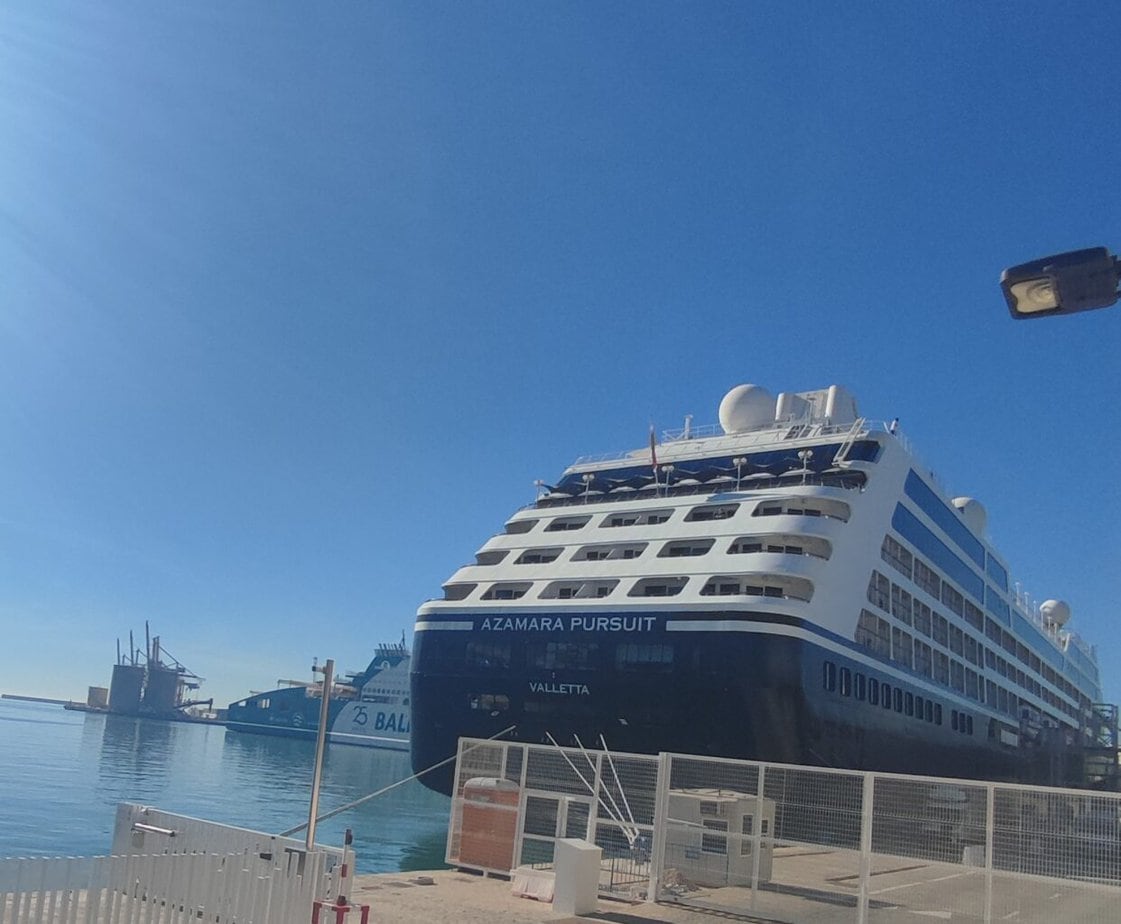
When Did Flying a Foreign Flag Start?
The history of flying a foreign flag for the purposes mentioned above goes back to the 1920s and the time of prohibition.
At the time companies started registering their ships in Panama and many kept this after the prohibition ended.
By doing this ship owners started to learn about the benefits of flying a flag of convenience and others around the world started to follow.
The term “Flag of Convenience” wasn’t used until around the 1950s when this started to become a common phrase.
Is It Good That Ships Fly Foreign Flags?
The question of it it’s good or bad that ships fly foreign flags is constantly up for debate.
Many argue that it allows cruise lines to pay staff much less than they otherwise would, avoid taxes, and even commit crimes.
Others argue that cruise lines wouldn’t be able to operate without flags of convenience and that they give people from poorer countries the opportunity to travel and earn a good living.
Whichever argument is right, I don’t think we will see this changing anytime soon!
Before You Go
As you have heard, cruise lines pay staff lower wages by registering their ships with a Flag of Convenience. You may be wondering if the crew receive perks, like free food to compensate for this. Find out more here:
Do Cruise Ship Employees Get Free Food? – Insider Guide
If you take a cruise from the US, it has to stop in at least one foreign port. Find out why here:
Why do Cruises From The US Have to Stop in Canada? (or Another Foreign Port)?
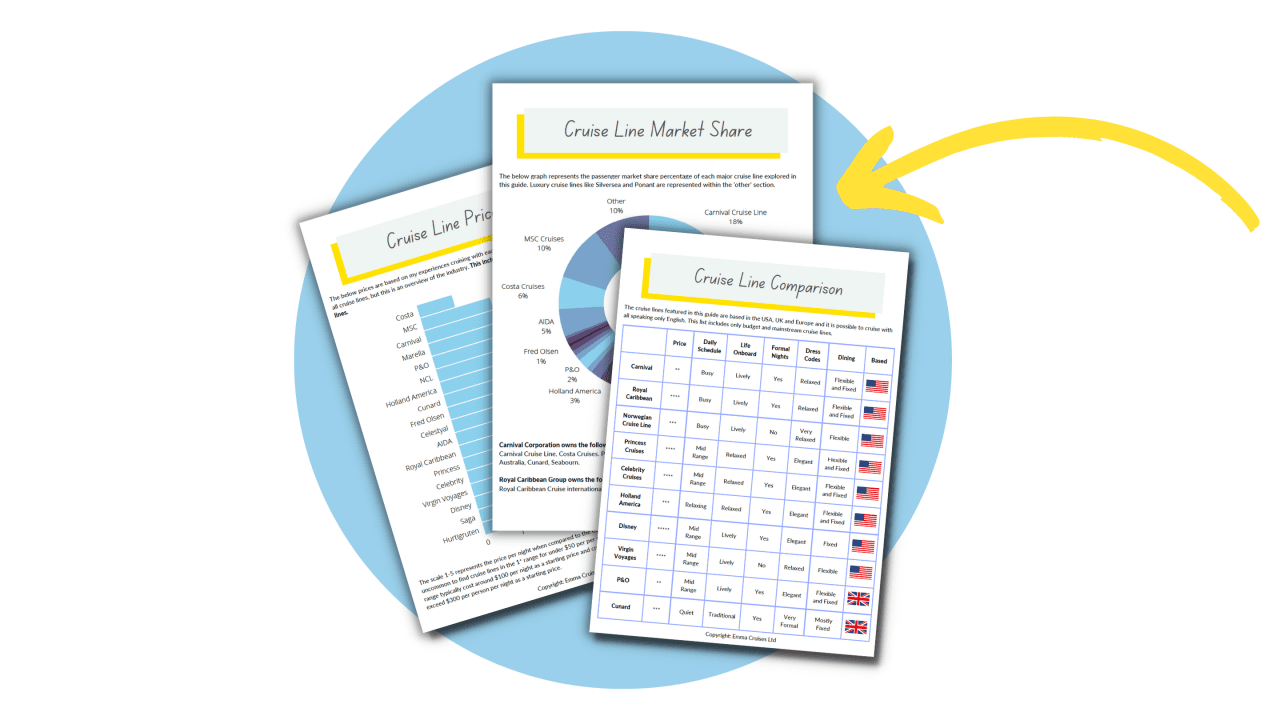
Free Insiders Cruise Line Guide
Ever wondered how the mainstream cruise lines compare? Cruise lines won’t tell you this, but I will.
This FREE guide shows you everything you need to know to find your perfect cruise line.
Enter your email address below:
U.S. Law and Policy for the Cruise Industry
- Conference paper
- First Online: 19 January 2022
- Cite this conference paper

- Ved P. Nanda 13
Part of the book series: Ius Comparatum - Global Studies in Comparative Law ((GSCL,volume 56))
184 Accesses
The United States is a major player in the cruise industry. However, very few ocean-going cruise ships sail under the U.S. flag, as ship owners register ships under flags of convenience, that is, flags of countries with lax safety and labor regulations and weak enforcement policies. Notwithstanding the constraints caused by the use of flags of convenience because a flag state has exclusive jurisdiction over its flagged vessel on the high seas, the U.S. has a robust legislative framework regulating major aspects of cruises. This includes vessel design requirements, safety requirements, civil and criminal liability regimes, labor regulations, and environmental protection.
This chapter discusses the U.S. law and policy for the cruise industry, and the ongoing efforts to further strengthen the pertinent laws and regulations to fill the gaps still remaining.
The author extends his gratitude to Kyle Ames, J.D. 2018, and Katharine Nanda, J.D. 1982, for their excellent assistance and support.
This is a preview of subscription content, log in via an institution to check access.
Access this chapter
- Available as PDF
- Read on any device
- Instant download
- Own it forever
- Available as EPUB and PDF
- Compact, lightweight edition
- Dispatched in 3 to 5 business days
- Free shipping worldwide - see info
- Durable hardcover edition
Tax calculation will be finalised at checkout
Purchases are for personal use only
Institutional subscriptions
Cruise Lines International Association, Inc. (CLIA), 2018 Cruise Industry Outlook , Dec. 2017, at 7, http://cruising.org/docs/default-source/research/clia-2018-state-of-the-industry.pdf?sfvrsn=2 .
Cruise Industry News, 2018 Biggest Year for New Cruise Ships since 2001 , Jan. 4, 2018, https://www.cruiseindustrynews.com/cruise-news/18321-2018-biggest-year-for-new-ships-since-2001.html .
CLIA, Global Demand for Cruising Surpasses 22 Million Passengers, Increasing 68 Percent in Ten Years , Oct. 19, 2015, www.cruising.org/about-the-industry/press%2D%2Droom/press-releases/global-demand-for-cruising-surpasses-22-million-passengers-increasing-68-percent-in-ten-years .
Statistic Brain. Cruise Ship Industry Statistics. March 3, 2017, https://www.statisticbrain.com/cruise-ship-industry-statistics/ [hereinafter Cruise Ship Industry Statistics]. The percentage of Americans who have taken a cruise is 19.9%. Id.
Minister Responsible for Maritime Affairs, Merchant Shipping Act (Amendment to First Schedule), Notice, 2012, https://www.bahamasmaritime.com/wp-content/uploads/2015/08/MS-Maritime-Labour-Convention-Regulations-2012.pdf .
All things cruise, Cruise Departure Ports, https://allthingscruise.com/cruise-research/cruise-departure-ports/ .
Florida-Caribbean Cruise Association, Cruise Industry Overview, 2017, http://www.f-cca.com/downloads/2017-Cruise-Industry-Overview-Cruise-Line-Statistics.pdf . See also CLIA, 2016 Cruise Industry Outlook, at 8 https://www.cruising.org/docs/default-source/research/2016_clia_sotci.pdf .
CLIA, 2017 Cruise Industry Outlook 14, https://www.cruising.org/docs/default-source/research/clia-2017-state-of-the-industry.pdf?sfvrsn=0 .
American Cruise Lines, Cruises: Destinations , https://www.americancruiselines.com/?utm_source=google&utm_medium=cpc&utm_campaign=us%20cruises&gclid=Cj0KCQiAyZLSBRDpARIsAH66VQKFNIvOBWc7wi7POordiVVcbId1kXlvsP3HPFYCU66KfffjKFXDBa8aAhItEALw_wcB .
See, e.g., How the cruise ship industry sails under the radar , Jan. 24, 2012, reuters.com/article/uk-italy-ship-regulation/how-the-cruise-ship-industry-sails-under-the-radar-idUSLINEBON02M0120124 .
Pride of America, https://www.ncl.com/cruise-ship/pride-of-america .
Cruise Mapper, Cruise Ship Registry, Flags of Convenience, http://www.cruisemapper.com/wiki/758-cruise-ship-registry-flags-of-convenience-flag-state-control .
Id. See also CLIA, 2016 Cruise Industry Outlook 15, https://www.cruising.org/docs/default-source/research/2016_clia_sotci.pdf .
See IMO.org ; United Nations Convention on the High Seas, 29 Apr. 1958, entered into force 30 September 1962, 450 U.N.T.S. 11, 82, http://www.gc.nowa.gov/documents/8_1_1958_high_seas.pdf .
Lauritzen v. Larsen , 345 U.S. 571 ( 1953 ).
Id. at 584.
Cruise Vessel Security and Safety Act of 2010, Pub. L. 111-207, 124 Stat. 2243, et seq., Jul. 27, 2010, enacted at 46 U.S.C. §3507.
Pub. L. 111-207, 124 Stat. 2243, §2. Findings.
There is voluminous literature on the topic. See, e.g., Negret ( 2016 ), p. 1.
U.S. Department of Transportation Maritime Administration, Comparison of U.S. and Foreign-Flag Operating Costs, September 2011 at 6, https://www.marad.dot.gov/wp-content/uploads/pdf/Comparison_of_US_and_Foreign_Flag_Operating_Costs.pdf .
See United States Coast Guard, homepage, http://www.uscg.mil/ .
Cruise Lines Would Face Higher Federal Taxes Under Rockefeller Legislation , Aug. 7, 2013, Wolters Kluwer Tax and Accounting, http://news.cchgroup.com/2013/08/07/cruise-lines-would-face-higher-federal-taxes-under-rockefeller-legislation/ . See also Bill Poling, Proposed Bills Could Raise Nearly $1 Billion in Cruise Taxes , Travel Weekly, Aug. 11, 2013, www.travelweekly.com/Cruise-Travel/Proposed-bills-could-raise-nearly-a-billion-in-cruise-taxes .
Remarks of Sen. John D. Rockefeller, IV, Chair, Senate Committee on Commerce, Science, and Transportation, 113th Congress, Hearing: Cruise Industry Oversight: Recent Incidents Show Need for Stronger Focus on Consumer Protection, July 24, 2013.
See Tom Stieghorst, Senate bill would tax cruise line income , Travel Weekly, Nov. 13, 2017, http://news.cchgroup.com/2013/08/07/cruise-lines-would-face-higher-federal-taxes-under-rockefeller-legislation/ .
Marex, Tax reform passed, cruise tax deleted , Dec. 2, 2017, www.maritime-executive.com/article/tax-reform-passed-cruise-tax-deleted .
U.S. Const., art. III, § 2, cl. 1.
28 U.S.C. § 3033(1).
Carnival Corp. v. Carlisle , 953 So.2d 461, 464 (Fl. 2007).
Passenger Vessel Services Act, 46 U.S.C. § 55103(b).
19 C.F.R. § 4.80(b)(2).
See, e.g., Buchholz and Buchholz ( 2017 ); Kasperkevic ( 2017 ); Mak et al. ( 2009 ).
Jones Act, 46 U.S.C. §30104. The critics considered it to be protectionist and failing to serve the U.S. national interest. See generally Kashian et al. ( 2017 ), www.grassrootinstitute.org/2017/04/the-jones-act-in-perspective/ .
Chandris, Inc. v. Latsis , 515 U.S. 347 ( 1995 ).
Am. Dredging Co. v. Miller , 510 U.S. 443, 456 (1994).
Kernan v. Am. Dredging Co ., 355 U.S. 426, 439 ( 1958 ).
In re Asbestos Products Liab. Litig. , 2012 WL 3242420 * 7, 10 (E.D. Pa., Aug. 7, 2012).
Death on the High Seas Act 46 U.S.C. app. §§ 761–768 (1920) (DOHSA), codified at 46 U.S.C. 303, et seq., US House of Representatives, Office of the Law Revision Council, United States Code. Chapter 303 Death on the High Seas , http://uscode.house.gov/view.xhtml?path=/prelim@title46/subtitle3/chapter303&edition=prelim .
Id. § 30302.
46 U.S.C.A. § 30509 (Oct 6, 2006).
Shipping Act of 1984, 46 U.S.C. §1702.
Eric Weiner, Cruise, National Public Radio, https://www.npr.org/templates/story/story.php?storyId=5251675 .
ABC News, Congress Eyes Cruise Ship Dangers , Dec. 13, 2005, http://abcnews.go.com/GMA/story?id=1400466 .
Government Publishing Office. 18 U.S.C. § 7. Special maritime and territorial jurisdiction of the United States defined.
Id ., https://www.gpo.gov/fdsys/pkg/USCODE-2010-title18/pdf/USCODE-2010-title18-partI-chap1-sec7.pdf .
U.S. Dep’t of Transp., Cruise Line Incident Reports, 2016 and 2017, https://www.transportation.gov/mission/safety/cruise-line-incident-reports [hereinafter DOT Incident Reports].
Mike M. Alhers. Passengers lack public info on cruise ship crime. July 25, 2013. CNN. http://www.cnn.com/2013/07/24/travel/cruise-ship-crime/index.html .
See DOT Incident Reports, supra note 53, original “not under investigation” restriction, which is appended to each quarter’s data from January of 2010, to December of 2015: “The number of matters “no longer under investigation” provided on this Internet site is necessarily different than the aggregate number of matters required to be reported to the FBI per the above. A matter may be reported but not opened as a full investigation if, for example, there is insufficient evidence of a federal crime within FBI jurisdiction or prosecution is declined. The “matters no longer under investigation” provided herein do not include: 1) open investigations or pending prosecutions; 2) reported matters other than homicide, suspicious death, a missing United States national, kidnapping, assault with serious bodily injury, sexual assault, firing or tampering with a vessel, or theft of money and property in excess of $10,000; 3) any matters that were reported that did not result in open investigations, investigations, e.g., lack of federal jurisdiction.”
International Maritime Organization. International Convention for the Prevention of Pollution from Ships (MARPOL). Adoption: 1973 (Convention), 1978 (1978 Protocol), 1997 (Protocol - Annex VI); Entry into force: 2 October 1983 (Annexes I and II) http://www.imo.org/en/about/conventions/listofconventions/pages/international-convention-for-the-prevention-of-pollution-from-ships-(marpol).aspx [hereinafter MARPOL].
IMO, International Convention for the Safety of Life at Sea (SOLAS), 1974 , www.imo.org/en/About/Conventions/ListOfConventions/Pages/International-Convention-for-the-Safety-of-Life-at-Sea-(SOLAS),-1974.aspx [hereinafter SOLAS]. “The Convention in force today is sometimes referred to as SOLAS, 1974, as amended,” as new amendments enter into force under a “tacit acceptance procedure” contained in the 1974 version that requires express objections from an agreed number of States Parties to prevent it.
As at Jan. 23, 2018. United Nations Treaty Collection, International Maritime Organization, https://treaties.un.org/Pages/ViewDetails.aspx?src=TREATY&mtdsg_no=XII-1&chapter=12&clang=_en .
International Maritime Organization, Introduction to IMO, 2017 , www.imo.org/en/About/Pages/Default.aspx .
Convention on the International Maritime Organization, Geneva, 289 U.N.T.S. 3 (6 Mar. 1948), entry into force 17 Mar. 1958.
The IMO also functions as Secretariat for the The Convention to Prevent Marine Pollution by Dumping Wastes and Other Matter of 1972, the “London Convention,” and its 1996 Protocol, whose purpose is to “promote the effective control of all sources of marine pollution and to take all practicable steps to prevent pollution of the sea by dumping of wastes and other matter.” http://www.imo.org/en/OurWork/Environment/Pages/Default.aspx .
MARPOL Convention, annexes I-VI. The relevant Annexes are:
Annex I Regulations for the Prevention of Pollution by Oil (entered into force 2 October 1983); Annex II Regulations for the Control of Pollution by Noxious Liquid Substances in Bulk (entered into force 2 October 1983): “In any case, no discharge of residues containing noxious substances is permitted within 12 miles of the nearest land”; Annex IV Prevention of Pollution by Sewage from Ships (entered into force 27 September 2003): “[S]ewage which is not comminuted or disinfected has to be discharged at a distance of more than 12 nautical miles from the nearest land”; Annex V Prevention of Pollution by Garbage from Ships (entered into force 31 December 1988): “the most important feature of the Annex is the complete ban imposed on the disposal into the sea of all forms of plastics”; Annex VI Prevention of Air Pollution from Ships (entered into force 19 May 2005): “Sets limits on sulphur oxide and nitrogen oxide emissions from ship exhausts and prohibits deliberate emissions of ozone depleting substances; designated emission control areas set more stringent standards for SOx, NOx and particulate matter. A chapter adopted in 2011 covers mandatory technical and operational energy efficiency measures aimed at reducing greenhouse gas emissions from ships.”
See Jim Walker, Over Cruise Industry’s Objection, IMO Creates Air Pollution Buffer Around U.S. and Canada http://www.cruiselawnews.com/2010/03/articles/pollution-1/over-cruise-industrys-objection-imo-creates-air-pollution-buffer-around-us-and-canada/ .
International Maritime Organization, IMO regulations to reduce air pollution from ships and the review of fuel oil availability, http://www.imo.org/en/MediaCentre/HotTopics/GHG/Documents/sulphur%20limits%20FAQ_20-09-2016.pdf . See, e.g., Jonathan Saul, IMO Sets Regulations to Cut Sulphur Emissions by Ships from 2020 , Oct. 27, 2016, www.gcaptain.com/imo-sets-regulations-cut-sulphur-emissions-smips-2020/ .
See Rittenhouse ( 2017 ), https://www.thestreet.com/story/13945339/1/regulators-force-cruise-lines-to-sail-green.html .
Special areas means “a sea area where for recognized technical reasons in relation to its oceanographical and ecological conditions and to the particular character of its traffic, the adoption of special mandatory methods for the prevention of sea pollution by oil, noxious liquid substances, or garbage, as applicable, is required.” IMO, Guidelines for the Designation of Special Areas under MARPOL 73/78 and Guidelines for the Identification and Designation of Particularly Sensitive Sea Areas, para. 2 [superseded], Resolution A.927(22), Adopted on 29 Nov. 2001, A/22/Res.927, 15 Jan. 2002, http://www.gc.noaa.gov/documents/gcil_sad_imo_927.pdf [hereinafter 2002 Guidelines].
In its Annexes I, IV, and V, MARPOL defines “special area” as areas “which, for technical reasons relating to their oceanographical and ecological condition and to their sea traffic, the adoption of special mandatory methods for the prevention of sea pollution is required. Under the Convention, these special areas are provided with a higher level of protection than other areas of the sea.” Special Areas under MARPOL, 2018, http://www.imo.org/en/OurWork/Environment/SpecialAreasUnderMARPOL/Pages/Default.aspx .
2002 Guidelines, supra note 67.
IMO, MARPOL 78/78, Guidelines for the Identification and Designation of Particularly Sensitive Sea Areas (PSSAs), Resolution A.982(24), adopted 1 Dec. 2005, A 24/Res.982, 6 Feb. 2006, http://www.imo.org/en/OurWork/Environment/PSSAs/Documents/A24-Res.982.pdf [hereinafter 2006 Guidelines].
2002 Guidelines, supra note 67, Annex at 16, 19.
Routing measures (24).
They are the Great Barrier Reef, Australia (designated a PSSA in 1990); The Sabana-Camagüey Archipelago in Cuba (1997); Malpelo Island, Colombia (2002); the sea around the Florida Keys, United States (2002); the Wadden Sea, Denmark, Germany, Netherlands (2002); Paracas National Reserve, Peru (2003); Western European Waters (2004); Extension of the existing Great Barrier Reef PSSA to include the Torres Strait (proposed by Australia and Papua New Guinea) (2005); Canary Islands, Spain (2005); the Galapagos Archipelago, Ecuador (2005); the Baltic Sea area, Denmark, Estonia, Finland, Germany, Latvia, Lithuania, Poland and Sweden (2005); the Papahānaumokuākea Marine National Monument, United States (2007); the Strait of Bonifacio, France and Italy (2011); the Saba Bank, in the North-eastern Caribbean area of the Kingdom of the Netherlands (2012); Extension of Great Barrier Reef and Torres Strait to encompass the south-west part of the Coral Sea (2015); the Jomard Entrance, Papua New Guinea (2016); and Tubbataha Reefs Natural Park, the Sulu Sea, Philippines (2017), http://www.imo.org/en/OurWork/Environment/PSSAs/Pages/Default.aspx . They can be seen at www.pssa.imo.org .
Id. , Appendix at 1.
Archipelago of Sabana-Camaguey, Cuba (MEPC.74(40)).
Id. Appendix at 2.
See Marinelog.com , USCG issues guidance on compliance with IMO BWM Convention, Sept. 8, 2017, http://www.marinelog.com/index.php?option=com_k2&view=item&id=27067:uscg-issues-guidance-on-compliance-with-imo-bwm-conventiom&Itemid=227&tmpl=component&print=1 , with link to the USCG policy letter and the IMO BWM Convention documents.
IMO Ballast Water Management Convention, Sept. 8, 2017, part 7, http://www.imo.org/en/About/Conventions/ListOfConventions/Pages/International-Convention-for-the-Control-and-Management-of-Ships’-Ballast-Water-and-Sediments-(BWM).aspx .
See Reuters, Princess Cruise Lines to Pay Largest-Ever Criminal Penalty for Deliberate Vessel Pollution, Dec. 1, 2016, https://www.reuters.com/article/us-carnival-usa-pollution/carnival-princess-to-pay-record-40-million-for-pollution-cover-up-idUSKBN13Q4YB .
U.S. Dept. of Justice, Office of Public Affairs, Princess Cruise Lines to Pay Largest-Ever Criminal Penalty for Deliberate Vessel Pollution, Dec. 1, 2016, including links to the criminal information, joint factual statement, and plea agreement, https://www.justice.gov/opa/pr/princess-cruise-lines-pay-largest-ever-criminal-penalty-deliberate-vessel-pollution .
IMO.org, About: International Convention for the Safety of Life at Sea (SOLAS), 1974 , Adoption 1 Nov. 1974; Entry into force 25 May 1980, http://www.imo.org/en/About/Conventions/ListOfConventions/Pages/International-Convention-for-the-Safety-of-Life-at-Sea-(SOLAS),-1974.aspx .
See the website of U.S. Coast Guard, www.uscg.mil . See also David A. Tyler, Coast Guard Proposes new rule on cruise ship security , Professional Mariner, Apr. 29, 2015, http://www.professionalmariner.com/May-2015/Coast-Guard-proposes-new-rule-on-cruise-ship-security/ .
See USCG, www.uscg.mil .
IMO, IMO Adopts Safety Amendments for Passenger Ships, June 16, 2017, https://worldmaritimenews.com/archives/222904/imo-adopts-safety-amendments-for-passenger-ships/ .
Cruise Vessel Security and Safety Act, Government Publishing Office, https://www.gpo.gov/fdsys/pkg/BILLS-111hr3360enr/pdf/BILLS-111hr3360enr.pdf [hereinafter CVSSA].
U.S. Congressman Ted Poe, Press Release, Cruise Vessel Security and Safety Act Becomes Law , July 27, 2010, https://poe.house.gov/press-releases?ID=51809220-DB31-4890-9A6A-D475FF729F68 .
CVSSA, supra note 90.
Id. § 3507(a).
Id. § 3507(b).
Id. § 3507(c).
Id. § 3507(d) (1)-(2).
Id. § 3507(d) (3).
Id. § 3507(d)(5)(B).
Id. § 3507(e).
Id . § 3507(f).
Id. § 3507(g).
Id. § 3507(g)(3).
Id. § 3508.
See Paul Hoskins, et al., How the cruise ship industry sails under the radar , Jan. 24, 2012, https://www.reuters.com/article/uk-italy-ship-regulation/how-the-cruise-ship-industry-sails-under-the-radar-idUSLNE80N02M20120124 [hereinafter Hoskins].
See Walker ( 2013 ), https://www.cruiselawnews.com/2013/12/articles/flags-of-convenience/poop-cruise-reveals-shortcomings-of-port-and-flag-state-inspections/ .
See, e.g., Terry v. Carnival Corp., Order on Motions for Summary Judgment, 3 F.Supp.3d 1363 (D. S.D. FL.).
See id . Annex 6 at 33: Data for Very Serious and Serious Casualties – Fire Casualty Record , “In addition to supplying the information requested in this annex, Administrations [flag states] are urged to also supply the information listed in other relevant annexes …in particular the information contained in annex 1” (ship identification and particulars).
Hoskins, supra note 104.
Cruise Industry Oversight: Recent Incidents Show Need for Stronger Focus on Consumer Protection : Hearings before the S. Comm. on Commerce, Science, and Transportation, 113 Cong. 2013, Jul. 23, 2013, https://www.gpo.gov/fdsys/pkg/CHRG-113shrg94526/pdf/CHRG-113shrg94526.pdf .
Id. at 45. See also Klein ( 2011 ), pp. 67–80.
Cruise Passenger Protection Act, S.965, 115th Cong. (2017–2018); https://www.congress.gov/bill/115th-congress/senate-bill/965; H.R. 2173, 115th Cong. (2017–2018); https://www.congress.gov/bill/115th-congress/house-bill/2173 [hereinafter CPPA].
Blumenthal and Himes Introduce Bicameral Legislation to Strengthen Cruise Passenger Safety Laws , Apr. 26, 2017, https://www.blumenthal.senate.gov/newsroom/press/release/blumenthal-and-himes-introduce-bicameral-legislation-to-strengthen-cruise-passenger-safety-laws .
CPPA, supra note 111, § 3525, SEC. 11.
Id. § 3522, SEC. 5.
Id. SEC. 6.
Id. SEC. 7.
Id. SEC. 8.
Id. SEC. 11.
Id . SEC. 9.
See, e.g., AP News, Alaska pollution regulators gear up for cruise ship season, May 3, 2017, https://www.apnews.com/d26c8908b52b41b1bbd579bd28427f85/Alaska-pollution-regulators-gear-up-for-cruise-ship-season .
Alaska Commercial Passenger Vessel Environmental Compliance Program, http://www.legis.state.ak.us/basis/statutes.asp#46.03.462 .
Id. Para. 2.
See, e.g., Alaska Dept of Environmental Conservation [DEC], Division of Water, Frequently Asked Questions – Cruise Ship Wastewater Discharge Regulation and HB 80, Dec. 5, 2017, http://dec.alaska.gov/water/cruise_ships/faq.htm . See also Graywater Regulations 33-CFR Part 150, Marine Exchange of Alaska, pt. 159.3, et seq., sec. 1(a)(4), Pub. L. 106-554, 114 Stat. 2763; https://www.gpo.gov/fdsys/pkg/CFR-2017-title33-vol2/xml/CFR-2017-title33-vol2-part159.xml .
See Pat Forgey, State didn’t issue cruise ship pollution citations for years despite repeated violations, Aug. 13, 2015, https://www.adn.com/alaska-news/article/state-mum-years-cruise-ship-air-violations/2015/08/13/ .
See Rashah McChesney, State’s cruise ship monitoring program shielded from budget cuts by tourists, Alaska Public Media, Jul. 26, 2017, https://www.alaskapublic.org/2017/07/26/states-cruise-ship-monitoring-program-shielded-from-budget-cuts-by-tourists/ .
Federal Maritime Commission, Cruise Vacations: Know Before You Go, https://www.fmc.gov/assets/1/Page/PVO2014-508.pdf .
Artistic Stone Crafters, Inc. v. Safeco Ins. Company of America , 2010 WL 317472 (S.D. Ga. 2010), citing Carnival Cruise Lines, Inc. v. Shute , 499 U.S. 585, 593-95 (1991), legislatively overruled on other grounds, by 46 U.S.C § 30509.
Federal Arbitration Act, 9 U.S.C. § 1 [hereinafter FAA].
Convention on the Recognition and Enforcement of Foreign Arbitral Awards, 9 U.S.C. 201 ( 2012 ). See, e.g., Quiroz v. MSC Mediterranean Shipping , 522 Fed. App’x 655, 661 (11th Cir. 2013).
FAA, supra note 137, at § 2.
Bautista v. Star Cruises , 396 F.3d 1289 (11th Cir. 2005).
Id. at 1295-97.
Id. at 1294.
Id. at 1303. See Anderson ( 2015 ), p. 335.
Yuzwa v. M/V Oosterdam , 2012 U.S. Dist. LEXIS 181458 (C.D. Cal. 2012). See also generally the extensive discussion in Suazo v. NCL (Bahamas), Ltd ., 822 F.3d 543 (11th Cir. 2016).
Friends of the Earth, 2016 Cruise Ship Report Card , https://1bps6437gg8c169i0y1drtgz-wpengine.netdna-ssl.com/wp-content/uploads/wpallimport/files/archive/Cruise_Report_2016.pdf .
Centers for Disease Control and Prevention, National Center for Environmental Health Vessel Sanitation Program, Health Practices on Cruise Ships: Training for Employees , Transcript. https://www.cdc.gov/nceh/vsp/training/videos/transcripts/water.pdf .
Chloe Farand, Air quality on cruise ship deck ‘worse than world’s most polluted cities,’ investigation finds . Independent, July 3, 2017, http://www.independent.co.uk/news/world/pollution-cruise-ships-po-oceana-higher-piccadilly-circus-channel-4-dispatches-a7821911.html .
Environmental Protection Agency, Health and Environmental Effects of Particulate Matter (PM). https://www.epa.gov/pm-pollution/health-and-environmental-effects-particulate-matter-pm .
World Health Organization, Regional Office for Europe, Health effects of particulate matter Policy implications for countries in eastern Europe, Caucasus and central Asia. 2013, p. 6. http://www.euro.who.int/__data/assets/pdf_file/0006/189051/Health-effects-of-particulate-matter-final-Eng.pdf .
John Vidal, The world’s largest cruise ship and its supersized pollution problem, The Guardian, May 21, 2016. https://www.theguardian.com/environment/2016/may/21/the-worlds-largest-cruise-ship-and-its-supersized-pollution-problem .
NABU, This stinks! - Clean up cruise ships! NABU’s campaign for a cleaner cruise industry, https://en.nabu.de/issues/traffic/cruiseships.html .
Marine Protection, Research, and Sanctuaries Act (16 U.S.C. § 1431 and 33 U.S.C. § 1401).
Environmental Protection Agency. Laws and Regulations, Summary of the Marine Protection, Research, and Sanctuaries Act. https://www.epa.gov/laws-regulations/summary-marine-protection-research-and-sanctuaries-act .
33 U.S.C. § 1251.
Clean Water Act. §101, 33 U.S.C. § 1251 (a)(1).
Environmental Protection Agency. Clean Water Act , CWA § 312 33 U.S.C. 1332 (b)(1), https://www3.epa.gov/npdes/pubs/cwatxt.txt .
33 U.S.C. §§1905-1915.
See Bennett ( 2017 ), https://maritime-executive.com/magazine/cruisings-environmental-impact#gs.eOzkd98 [hereinafter Mar-Ex].
Id. See IMO Marine Environment Protection Committee (MEPC) Resolution 227(64).
Mar-Ex, supra note 235.
Constitution and U.S. Statutes
U.S. Const., art. III, § 2, cl. 1
Google Scholar
Clean Water Act. §101, 33 U.S.C. § 1251 (a)(1)
Convention on the Recognition and Enforcement of Foreign Arbitral Awards, 9 U.S.C. 201 (2012)
Cruise Vessel Security and Safety Act of 2010, Pub. L. 111-207, 124 Stat. 2243, et seq., Jul. 27, 2010, enacted at 46 U.S.C. §3507
Death on the High Seas Act 46 U.S.C. app. §§ 761–768 (1920) (DOHSA), codified at 46 U.S.C. 303, et seq., US House of Representatives, Office of the Law Revision Council, United States Code. Chapter 303 Death on the High Seas , http://uscode.house.gov/view.xhtml?path=/prelim@title46/subtitle3/chapter303&edition=prelim
Federal Arbitration Act, 9 U.S.C. § 1
Government Publishing Office. 18 U.S.C. § 7. Special maritime and territorial jurisdiction of the United States defined
Jones Act, 46 U.S.C. §30104
Marine Protection, Research, and Sanctuaries Act (16 U.S.C. § 1431 and 33 U.S.C. § 1401)
Passenger Vessel Services Act, 46 U.S.C. § 55103(b)
Shipping Act of 1984, 46 U.S.C. §1702
Am. Dredging Co. v. Miller , 510 U.S. 443, 456 (1994)
Artistic Stone Crafters, Inc. v. Safeco Ins. Company of America , 2010 WL 317472 (S.D. Ga. 2010)
Bautista v. Star Cruises , 396 F.3d 1289 (11th Cir. 2005)
Carnival Corp. v. Carlisle , 953 So.2d 461, 464 (Fl. 2007)
Chandris, Inc. v. Latsis, 515 U.S. 347 (1995)
Kernan v. Am. Dredging Co., 355 U.S. 426, 439 (1958)
Lauritzen v. Larsen, 345 U.S. 571 (1953)
Quiroz v. MSC Mediterranean Shipping , 522 Fed. App’x 655, 661 (11th Cir. 2013)
Suazo v. NCL (Bahamas), Ltd ., 822 F.3d 543 (11th Cir. 2016)
Terry v. Carnival Corp., Order on Motions for Summary Judgment, 3 F.Supp.3d 1363 (D. S.D. FL.)
Yuzwa v. M/V Oosterdam , 2012 U.S. Dist. LEXIS 181458 (C.D. Cal. 2012)
Everything Else
Alaska Commercial Passenger Vessel Environmental Compliance Program, http://www.legis.state.ak.us/basis/statutes.asp#46.03.462
Alaska Dept of Environmental Conservation [DEC], Division of Water, Frequently Asked Questions – Cruise Ship Wastewater Discharge Regulation and HB 80, Dec. 5, 2017., http://dec.alaska.gov/water/cruise_ships/faq.htm
All things cruise, Cruise Departure Ports, https://allthingscruise.com/cruise-research/cruise-departure-ports/
American Cruise Lines, Cruises: Destinations, https://www.americancruiselines.com/?utm_source=google&utm_medium=cpc&utm_campaign=us%20cruises&gclid=Cj0KCQiAyZLSBRDpARIsAH66VQKFNIvOBWc7wi7POordiVVcbId1kXlvsP3HPFYCU66KfffjKFXDBa8aAhItEALw_wcB
Anderson LM (2015) Mandatory arbitration within cruise ship employment agreements: without global change, the disparity of power continues to expand. Loy Mar Law J 14:335
In re Asbestos Products Liab. Litig. , 2012 WL 3242420 * 7, 10 (E.D. Pa., Aug. 7, 2012)
Bennett M (2017) Cruising’s Environmental Impact: “The industry strives to go green and atone for past missteps,” Jan.–Feb. 2017, https://maritime-executive.com/magazine/cruisings-environmental-impact#gs.eOzkd98
Buchholz VJ, Buchholz TG (2017) How Grover Cleveland ruined American cruises. L.A. Times, Aug. 3, 2017
Centers for Disease Control and Prevention, National Center for Environmental Health Vessel Sanitation Program, Health Practices on Cruise Ships: Training for Employees , Transcript. https://www.cdc.gov/nceh/vsp/training/videos/transcripts/water.pdf
Convention on the International Maritime Organization, Geneva, 289 U.N.T.S. 3 (6 Mar. 1948), entry into force 17 Mar. 1958
Cruise Industry Oversight: Recent Incidents Show Need for Stronger Focus on Consumer Protection : Hearings before the S. Comm. on Commerce, Science, and Transportation, 113 Cong. 2013, Jul. 23, 2013, https://www.gpo.gov/fdsys/pkg/CHRG-113shrg94526/pdf/CHRG-113shrg94526.pdf
Cruise Lines International Association, Inc. (CLIA), 2018 Cruise Industry Outlook , Dec. 2017, at 7, http://cruising
Cruise Mapper, Cruise Ship Registry, Flags of Convenience, http://www.cruisemapper.com/wiki/758-cruise-ship-registry-flags-of-convenience-flag-state-control
Cruise Passenger Protection Act, S.965, 115th Cong. (2017-2018.); https://www.congress.gov/bill/115th-congress/senate-bill/965 ; H.R. 2173, 115th Cong. (2017-2018); https://www.congress.gov/bill/115th-congress/house-bill/2173
Cruise Vessel Security and Safety Act, Government Publishing Office, https://www.gpo.gov/fdsys/pkg/BILLS-111hr3360enr/pdf/BILLS-111hr3360enr.pdf
Environmental Protection Agency. Laws and Regulations, Summary of the Marine Protection, Research, and Sanctuaries Act. https://www.epa.gov/laws-regulations/summary-marine-protection-research-and-sanctuaries-act
Environmental Protection Agency. Health and Environmental Effects of Particulate Matter (PM). https://www.epa.gov/pm-pollution/health-and-environmental-effects-particulate-matter-pm
Florida-Caribbean Cruise Association, Cruise Industry Overview, 2017, http://www.f-cca.com/downloads/2017-Cruise-Industry-Overview-Cruise-Line-Statistics.pdf . See also CLIA, 2016 Cruise Industry Outlook, at 8 https://www.cruising.org/docs/default-source/research/2016_clia_sotci.pdf
Graywater Regulations 33-CFR Part 150, Marine Exchange of Alaska, pt. 159.3, et seq., sec. 1(a)(4), Pub. L. 106-554, 114 Stat. 2763; https://www.gpo.gov/fdsys/pkg/CFR-2017-title33-vol2/xml/CFR-2017-title33-vol2-part159.xml
IMO.org, About: International Convention for the Safety of Life at Sea (SOLAS), 1974, Adoption 1 Nov. 1974; Entry into force 25 May 1980, http://www.imo.org/en/About/Conventions/ListOfConventions/Pages/International-Convention-for-the-Safety-of-Life-at-Sea-(SOLAS),-1974.aspx
International Maritime Organization. International Convention for the Prevention of Pollution from Ships (MARPOL). Adoption: 1973 (Convention), 1978 (1978 Protocol), 1997 (Protocol - Annex VI); Entry into force: 2 October 1983 (Annexes I and II), http://www.imo.org/en/about/conventions/listofconventions/pages/international-convention-for-the-prevention-of-pollution-from-ships-(marpol).aspx [hereinafter MARPOL]
IMO, Guidelines for the Designation of Special Areas under MARPOL 73/78 and Guidelines for the Identification and Designation of Particularly Sensitive Sea Areas, para. 2 [superseded], Resolution A.927(22), Adopted on 29 Nov. 2001, A/22/Res.927, 15 Jan. 2002., http://www.gc.noaa.gov/documents/gcil_sad_imo_927.pdf [hereinafter 2002 Guidelines]
IMO, IMO Adopts Safety Amendments for Passenger Ships, June 16, 2017., https://worldmaritimenews.com/archives/222904/imo-adopts-safety-amendments-for-passenger-ships/
IMO, Ballast Water Management Convention, Sept. 8, 2017, part 7, http://www.imo.org/en/About/Conventions/ListOfConventions/Pages/International-Convention-for-the-Control-and-Management-of-Ships’-Ballast-Water-and-Sediments-(BWM).aspx
International Maritime Organization, IMO regulations to reduce air pollution from ships and the review of fuel oil availability, http://www.imo.org/en/MediaCentre/HotTopics/GHG/Documents/sulphur%20limits%20FAQ_20-09-2016.pdf
IMO, International Convention for the Safety of Life at Sea (SOLAS), 1974., www.imo.org/en/About/Conventions/ListOfConventions/Pages/International-Convention-for-the-Safety-of-Life-at-Sea-(SOLAS),-1974.aspx
IMO.org; United Nations Convention on the High Seas, 29 Apr. 1958, entered into force 30 September 1962, 450 U.N.T.S. 11, 82, http://www.gc.nowa.gov/documents/8_1_1958_high_seas.pdf
Kashian R et al (2017) The Jones Act in perspective: a survey of the costs and effects of the 1920 Merchant Marine Act. Grassroot Institute of Hawaii, Apr. 9, 2017, www.grassrootinstitute.org/2017/04/the-jones-act-in-perspective/
Kasperkevic J (2017) Why there is only one cruise ship in the world with an all-American crew, marketplace.org , Sept. 29, 2017
Klein RA (2011) Sex at sea: sexual crimes aboard cruise ships. J Tour Mar Environ 7(2):67–80
Article Google Scholar
Mak J et al (2009) The passenger vessel services act and America’s cruise tourism industry. Univ. of Hawaii Economic Research Organization Working Paper, Jan. 22, 2009
Marinelog.com, USCG issues guidance on compliance with IMO BWM Convention, Sept. 8, 2017., http://www.marinelog.com/index.php?option=com_k2&view=item&id=27067:uscg-issues-guidance-on-compliance-with-imo-bwm-conventiom&Itemid=227&tmpl=component&print=1 , with link to the USCG policy letter and the IMO BWM Convention documents
MARPOL Convention, annexes I-VI
NABU, This stinks! - Clean up cruise ships! NABU's campaign for a cleaner cruise industry, https://en.nabu.de/issues/traffic/cruiseships.html
Negret CFL (2016) Pretending to be Liberian and Panamanian; flags of convenience and the weakening of the nation state on the high seas. J Mar Law Com 47:1
Rittenhouse L (2017) The Government is Forcing Cruise Lines to Help Save the Environment . . . Or Else, Jan. 6, 2017, https://www.thestreet.com/story/13945339/1/regulators-force-cruise-lines-to-sail-green.html
Statistic Brain. Cruise Ship Industry Statistics. March 3, 2017., https://www.statisticbrain.com/cruise-ship-industry-statistics/ [hereinafter Cruise Ship Industry Statistics]..org/docs/default-source/research/clia-2018-state-of-the-industry.pdf?sfvrsn=2
U.S. Dept. of Justice, Office of Public Affairs, Princess Cruise Lines to Pay Largest-Ever Criminal Penalty for Deliberate Vessel Pollution, Dec. 1, 2016., https://www.justice.gov/opa/pr/princess-cruise-lines-pay-largest-ever-criminal-penalty-deliberate-vessel-pollution
U.S. Department of Transportation Maritime Administration, Comparison of U.S. and Foreign-Flag Operating Costs, September 2011 at 6, https://www.marad.dot.gov/wp-content/uploads/pdf/Comparison_of_US_and_Foreign_Flag_Operating_Costs.pdf
United States Coast Guard, homepage, http://www.uscg.mil/
Walker J (2013) Poop Cruise reveals shortcomings of port and flag state inspections. Cruise Law News, Dec. 22, 2013, https://www.cruiselawnews.com/2013/12/articles/flags-of-convenience/poop-cruise-reveals-shortcomings-of-port-and-flag-state-inspections/
World Health Organization, Regional Office for Europe, Health effects of particulate matter Policy implications for countries in eastern Europe, Caucasus and central Asia. 2013, p 6, http://www.euro.who.int/__data/assets/pdf_file/0006/189051/Health-effects-of-particulate-matter-final-Eng.pdf
Download references
Author information
Authors and affiliations.
The University of Denver, Denver, CO, USA
Ved P. Nanda
You can also search for this author in PubMed Google Scholar
Corresponding author
Correspondence to Ved P. Nanda .
Editor information
Editors and affiliations.
University of the Republic, Montevideo, Uruguay
Cecilia Fresnedo de Aguirre
Rights and permissions
Reprints and permissions
Copyright information
© 2022 The Author(s), under exclusive license to Springer Nature Switzerland AG
About this paper
Cite this paper.
Nanda, V.P. (2022). U.S. Law and Policy for the Cruise Industry. In: Fresnedo de Aguirre, C. (eds) Legal Aspects of Cruises. Ius Comparatum - Global Studies in Comparative Law, vol 56. Springer, Cham. https://doi.org/10.1007/978-3-030-83090-8_9
Download citation
DOI : https://doi.org/10.1007/978-3-030-83090-8_9
Published : 19 January 2022
Publisher Name : Springer, Cham
Print ISBN : 978-3-030-83089-2
Online ISBN : 978-3-030-83090-8
eBook Packages : Law and Criminology Law and Criminology (R0)
Share this paper
Anyone you share the following link with will be able to read this content:
Sorry, a shareable link is not currently available for this article.
Provided by the Springer Nature SharedIt content-sharing initiative
- Publish with us
Policies and ethics
- Find a journal
- Track your research
Law Offices of Charles D. Naylor
Expert legal representation for maritime workers and cruise ship passengers.
February 21, 2019 By naylorlaw
What is a Flag of Convenience?
Sailing a ship under a flag of convenience is a business practice that a growing number of ship owners take. The ship operates and is taxed under the laws of the country for which it is flagged. Registering the vessel in a different country than the one where the owner lives helps them save money. In some cases, it also allows the ship to operate under less stringent regulations.
Why Do Ships Need a Flag of Convenience?
International law requires every merchant ship to register in a country. The country of registration is the ship’s “ flag state .” Ship registration gives the ship its nationality, even when it differs from that of the owners. The flag allows the ship to travel to any destination where citizens of the same nation may travel.
The ship’s flag state also exercises regulatory control over the vessel. The Law of the Sea requires the flag state to inspect the vessel regularly, issue safety and environmental protection documents, and certify the equipment on-board and the crew. A group called “the registry” performs these acts under the government, a private agency, or a hybrid of the two.
Ship registration has been in practice since people started doing business across the seas centuries ago. Originally, registration ensured ships were locally built and carried local crews. Today, registration helps authorities document ownership and prove nationality. It safeguards treaty practices and increases financing options.
Traditional Vs Open Registries
Every nation treats ship registration differently. Some only allow traditional registry, meaning they allow the registration of vessels owned by local residents or companies. Other nations allow open registries or ships that sail under “flags of convenience.”
Every ship that travels internationally must register with someone. Nations with open registries often make it easier to register a vessel. Some allow you to register your ship online. Those with traditional registries sometimes allow ships to register even if you aren’t a resident. For example, they might require you to hire a percentage of your crew locally.
The differences between laws and taxes among nations also make some more popular than others for the registry. The top five flag states with the largest number of registered vessels are:
- Marshall Islands
While the list is extensive, these five nations control 77% of the total number of vessels registered under flags of convenience. Panama leads the way with the largest number of registered vessels in the world. How did a small nation with a population of only three million become such an important trade route? Its long, slender shape and position make it ideal for maritime trade. Panama sits between the Pacific and Atlantic oceans.
Panama is one of the Seven Wonders of the World, with a 48-mile canal that handles 14,000 ships annually. These features make it one of the most desired flags for ships to fly under. However, Panama has a limited history of trade.
The country of Panama is one that offers online registration of vessels. It also gives the advantage of cheaper foreign labor. Most important to some ship owners is the fact that they don’t have to pay any income taxes. More ships fly the Panama flag than the flags for the U.S. and China combined!
The Controversy Over Flags
As with any issue or practice, there are both proponents and critics of open registries. Those in favor of the practice want to save money. Cheap labor and slack regulations make them more competitive in a global industry.
Those against open registries complain about the lack of regulations and oversight. The practice of sailing under a flag of convenience began in the 1920s after the end of WWI. The phrase itself didn’t come into use until the 1950s. Early on, images of dilapidated vessels and “rust buckets” emerged. These vessels were often operated by overworked crews.
Today, some people claim that top countries like Panama and Liberia follow the requirements imposed on them. They use maritime experts to ensure vessels are seaworthy and they operate safely. Others cite the high number of accidents involving Panamanian-registered ships as evidence Panama is still cutting corners. Some experts contribute the numbers to the greater number of ships on the water.
Panama has long been the target of charges of corruption. It is also known that other nations with fewer vessel registrations follow substandard regulations. One of the biggest concerns is the ability of ship owners to remain anonymous. In many cases, identifying the owner of a vessel is impossible.
This ability to stay hidden gives some ship owners the ideal setting for criminal activity. These acts might harm the environment or put crew members at a greater risk of injury. When legal issues arise, there’s no way to identify and take legal action against the guilty party. As a result, these vessels are now targeted by other nations when they make call in one of the host nation’s ports.

International Law of the Sea
Oceans run through the planet much like our veins run through our bodies. They deliver oxygen to the atmosphere and absorb carbon from it. The oceans produce life-sustaining air, food, and water. They provide a source of entertainment, livelihood, and transportation.
The International Law of the Sea is a body of customs, treaties, and international agreements used to govern the oceans. These laws help preserve marine life, maintain order, and maintain peace on the sea.
The different countries in the world are both separated and joined by our oceans. Only by implementing international law can we protect the lifeblood of the planet. Granted, some gaps in the laws do exist. Many people believe that the option to fly a flag of convenience is one of them. This option allows shipowner to follow lax rules and regulations observed in some countries.
Maritime law deals with injuries and property damage in domestic waters in the U.S. The Law of the Sea deals with international waters. Failing to follow these laws can have a significant impact on the planet or on the workers on a ship.
Even when ship owners follow the law and safety regulations, jobs on the high seas are inherently more dangerous than others. The work environment comes with greater risks. It also places injured crew members long distances from needed medical attention.
Maritime law applies to injuries of sailors, rig workers, and longshoreman. It covers private entities including ship owners and their employees. It also applies to cruise ships that cater to passengers. Types of maritime law include:
- The Jones Act – Formally called the Merchant Marine Act of 1928, this law gives injured seamen the right to sue the shipowner for negligence that caused their injuries.
- The Death on the High Seas Act (DOHSA) gives relatives of soldiers who die more than three nautical miles from the shore the right to sue the employer. The types of damages available include lost financial support and funeral expenses.
- The Outer Continental Shelf Lands Act (OCSLA) – Provides financial compensation to injured oil rig workers and other non-sailor professionals.
- The Longshore and Harbor Workers’ Compensation Act (LHWCA) – Gives rights to non-sailors in the maritime industry.
In contrast, the Law of the Sea deals with international agreements that apply to all nations. These laws accumulated over centuries. The rules and principles were codified into law during the 1994 United Nations Convention on the Law of the Sea (UNCLOS.) Specifically, it deals with the following issues:
– Jurisdiction Over Coastal Waters : Many countries have extended coastal waters to include waters to 12 nautical miles beyond the low water line or baseline. UNCLOS sets territorial waters at 12 nautical miles, also putting a contiguous zone at 24 nautical miles in place.
– Ownership of Natural Resources : Countries have the legal right to claim up to 200 nautical miles from the baseline, or 350 nautical miles where the continental shelf extends that far as their Exclusive Economic Zone (EEZ). The rights extend to mineral deposits including oil and gas.
– Navigational Rights : Vessels from other nations have a legal right to pass through territorial waters to the extent necessary to reach their destination. The “innocent passage” doctrine prevents foreign vessels from breaking laws or causing harm to the nation that owns the territorial waters.
Flag of Convenience: The Abuse of International Law of the Sea?
Some critics of flag of convenience registrations blame gaps in the laws for resulting issues. Others blame the failure of nations to apply the laws. Others point out that all FOC ship owners aren’t bad. Many observe the safety measures and pay their workers a fair wage. It’s the negligence of those ship owners who always put finances first that puts crew members at a higher risk of serious injury or death.
What Happens When Maritime Accidents Occur Due to the Use of Flags?
Regardless of which side of the debate you’re on, serious maritime accidents occur with vessels flying a flag of convenience. The combination of more ships carrying the flag and the lower safety regulations means the problem will only grow larger. When an injury or death occurs because of a safety breach, someone is liable. But whom?
Choosing a Registry
Simply choosing a top registry like Panama or Liberia might not get the results you need. The rules differ among the nations with open registries. The right one for your needs depends on…
- What type of shipping you perform
- The reputations of the country of registration
- The convenience and expense of registration
Talk with a maritime lawyer in Long Beach, California, who understands the rules and responsibilities of flying a flag of convenience before you register.

Pros and Cons of Applying for a Flag of Convenience
As commerce becomes more global, so does the practice of international shipping. As the number of businesses selling their goods internationally grows, so does the competition. International shipping and trade companies are looking for every possible avenue to cut their expenses.
Many businesses feel driven to have a flag of convenience to remain competitive. Many consider it more of a “flag of necessity.” Business owners don’t feel they can provide the same level of service as other companies without the same financial advantages. But there are some disadvantages that go with the designation, too.
– You can register your ship in a foreign territory without being established in that country
– Low formation costs in states where required
– The benefits of ownership remain anonymous
– Low or no taxation
– No limitations on the nationality or employment conditions of the crew including the age limits
– No minimum tonnage requirements
– Dual registration may be allowed
– Fast and easy registration procedures, sometimes online
Cons…
Ship owners have few disadvantages while the workers often pay a higher price. The cons for them are:
– FOC doesn’t necessitate their basic rights
– Lower standards of working conditions
– The risk of unknowingly being dragged into illegal trade
– Lower pay
– Insufficient compensation for injuries due to accidents at sea. A lack of regulation puts mariners at an even greater risk of an accident. Running under a flag of convenience might mean the mariner or their family doesn’t get the compensation they need.
– Challenging work schedules that don’t allow mariners the proper amount of rest
– Uncertain career choices for the future. Some mariners suffer from the uncertainty of not knowing what situation they will get into next. In some cases, situations have resulted in physical injury. In others, it has led to damage to their career. One of the biggest risks is the early termination of a mariner from their career.
Carrying a flag of convenience isn’t always a bad thing. It helps ship owners who can’t otherwise compete to run a successful business. If you’re considering sailing under a flag of convenience, consult with an experienced maritime attorney who knows which flag is right for you.
If you have been injured because of a flag of convenience, contact a maritime attorney to learn more about your rights. Some changes in the application of the laws of the sea might help your case.
Contact the Law Offices of Charles D. Naylor for a free case evaluation. Our maritime personal injury attorneys provide expert legal representation for maritime workers, offshore oil workers, and cruise ship passengers.

Subscribe to Our Newsletter

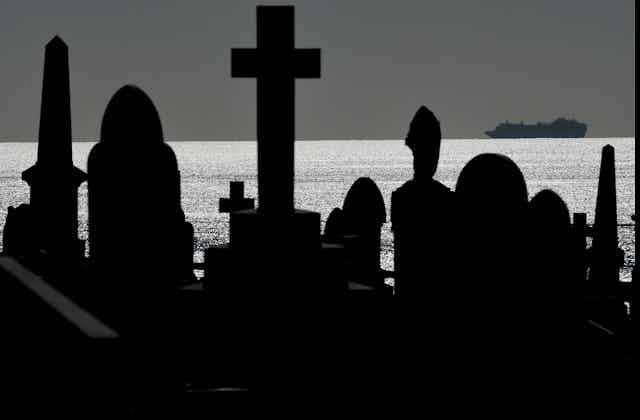
This could be the end of the line for cruise ships
Senior Lecturer in Tourism Management, University of South Australia
Disclosure statement
Freya Higgins-Desbiolles does not work for, consult, own shares in or receive funding from any company or organisation that would benefit from this article, and has disclosed no relevant affiliations beyond their academic appointment.
University of South Australia provides funding as a member of The Conversation AU.
View all partners
Stranded cruise ships have become a symbol of the COVID-19 pandemic. Passengers and crew are desperate to get off but the ports to which they’ve headed don’t want them.
It is no exaggeration to suggest this crisis could spell the end of the line for an industry already on the nose for its social, health and environmental problems.
Indeed the same business model at the root of those problems is the cause of its current crisis, in which ship operators have been accused of gross or even criminal negligence.
That model has to do with flags of convenience.
Flags of convenience mean ships operate in waters far from their “home” ports. Most are registered in Caribbean tax havens. Operating outside clear jurisdictions, wages are low and working conditions poor.
That so many ships have become floating coronavirus incubators also indicates poor health and safety protocols. An emergency plan for an infectious outbreak on a ship seems an obvious thing to have. Yet reports suggest improvised responses .
Now, with ports and entire nations ordering cruise ships away, flags of convenience have become an existential threat to crew, and the industry.

Ships ordered away
The industry’s reputational crisis is demonstrated no better than in Australia, where 24 of the nation’s 61 confirmed COVID-19 deaths so far have come from cruise ships.
All 20 cruise ships still in Australian waters were ordered to leave last week, with Australian Border Force commissioner Michael Outram citing concerns the number of cases among crew would be “a big strain on the Australian health system”.
Read more: Explainer: what are Australia's obligations to cruise ships off its coast under international law?
Just one ship, the Ruby Princess. is linked to 18 deaths (and about 700 infections – roughly 10% of Australia’s total cases).
Deaths have also come from the Artenia , Voyager of the Seas , Celebrity Solistice and Ovation of the Seas .
The Ruby Princess was allowed to dock in Sydney on March 19. About 2,700 passengers disembarked without being tested, because New South Wales authorities believed there was low risk .
Police are now investigating possible criminal charges against the operator, Princess Cruises, for misleading authorities about the situation. (The ship has since been allowed to dock at Port Kembla, south of Sydney, with a fifth of more than 1,000 crew quarantined aboard showing virus-like symptoms).
There are also calls for a criminal negligence investigation of the operator of the Artania, in a weeks-long stand-off in Western Australian waters.
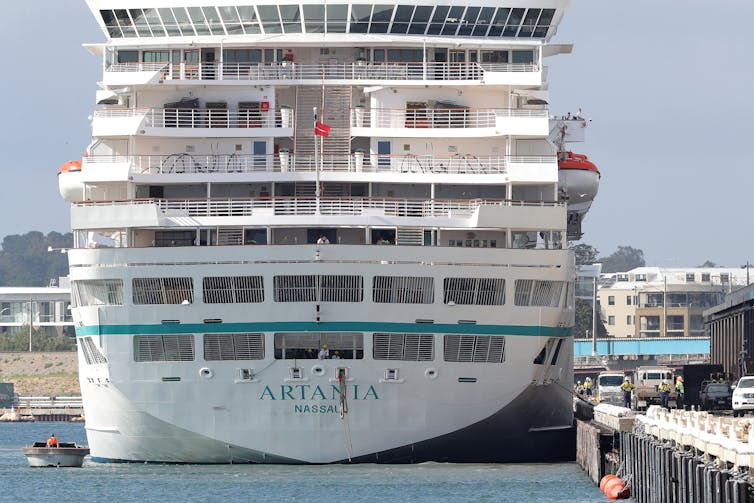
Most of the ship’s passengers were allowed to disembark and get charter flights home to Europe. But more than 400 people, mostly crew, remain on board, and the state government fears the number of coronavirus cases would overwhelm local hospitals .
“We’d like you to leave, we don’t want you in our port,” said West Australian premier Mark McGowan.
But where are they, and tens of thousands of crew workers on hundreds of other cruise ships around the world, to go?
Caribbean tax shelters
Consider the Artenia. The ship is owned by British cruise line P&O, chartered to a German company, operates out of Frankfurt and is registered in the Bahamas.
The Ruby Princess operates out of Australia but is registered in Bermuda. Its owner, Princess Cruises, is headquartered in California but also incorporated in Bermuda.
Most cruise ships are registered in a country different to ownership or operation. More than two-thirds (by tonnage) fly the flags of just three nations – the Bahamas, Panama and Bermuda.
Flags of convenience make the cruise ship industry one of the world’s least regulated , with owners and operators able to skirt more stringent workplace, health, safety and environmental rules.
For crew, particularly those in “lower level” service jobs, pay and conditions are poor. Many accept such conditions to earn money for their families. Hidden from view, even passengers can be oblivious to their conditions.
Incorporations of convenience
Both P&O and Princess Cruises are subsidiaries of the world’s biggest cruise company, Carnival Corporation, whose combined fleet of about 300 ships carries almost half the world’s cruising passengers
Carnival Corporation is headquartered in Miami, as are the second and third biggest cruise corporations, Royal Caribbean and Norwegian. But Carnival is incorporated in Panama, Norwegian in Bermuda, and Royal Caribbean in Liberia.
Now these “incorporations of convenience” threaten their survival. Their revenue has been cut to zero. The US government is offering no assistance because they’re foreign companies and their employees are spread across the world. Other governments are unlikely to do more.
Industry analysts say the big cruise operators have enough reserves to last six months. After that, if they don’t secure funding, they face going out of business.
Sailing into the sunset
If that happens, many will not mourn the loss.
Long before this crisis, the cruise ship industry was on the nose for its social and environment problems.
It has contributed to overtourism in places like Barcelona, Reykjavik, Dubrovnik and Venice. Its environmental record is appalling. Just last year Carnival paid $US20 million (A$28 million) to settle a US court case over it allowing its ships to dump rubbish in the ocean – something for which it has a previous criminal conviction .
Read more: The travel industry has sparked a backlash against tourists by stressing quantity over quality
Now the industry’s carefully honed image of cruise ships offering the right balance between fun and security looks sunk.
Whatever remains after this crisis will need a complete overhaul.
- Coronavirus
- Sustainable tourism
- Cruise ships

Project Offier - Diversity & Inclusion

Senior Lecturer - Earth System Science

Sydney Horizon Educators (Identified)

Deputy Social Media Producer

Associate Professor, Occupational Therapy
American College Of Culinary & Language Arts
Cruise life, why cruise ships fly flags of convenience.
Have you ever noticed the flags flown by cruise ships? Admittedly, the grandeur and pomp of these floating hotels leaves very little space for one to notice ‘small’ things like flags, but these actually form a significant part of cruising.
Cruise ships fly flags of the countries they are registered in. This means they, like all other marine vessels, are subject to the rules, regulations and safety norms of that particular country.
The use of flags of convenience dates back to the 1920s when the US imposed prohibition, a nationwide ban on the production, import, sale and transport of alcohol. To circumvent this, many cruise ship owners began to register their vessels in nearby countries that had relatively more lenient laws.
The trend expanded to include a circumvention of other regulations from countries like the US and Norway to help the cruise ship companies be more profitable. Owing to this, the flags they flew began to be known as flags of convenience.
Today, most ships fly flags of convenience. It might come as a surprise that while a large majority of cruise lines visit US ports and even have headquarters in the US with American owners, their flags indicate affiliation to another country.
They do this simply because it is a good business decision as certain countries have lower fees or taxes, and other rules that enable lower operating costs. Financially, fewer regulations mean more profit. Countries like the US have stringent rules when it comes to environment and labour protection laws and relatively higher corporate income tax.
It is estimated that more than half of the world’s merchant maritime vessels are registered under flags of convenience, and 90 per cent of those touching ports in the US come under these.
The Bahamas typically has the most number of cruise ships registered to its name, with Panama being another popular choice. Primarily, this means that the US’ stringent labour laws do not apply to cruise ships registered in these countries. If a cruise ship flies a US flag, American maritime laws take charge for any rules, regulations or even complaints filed against the company. When flying flags of convenience, this role is often played by the captain whose word is law.
International Transport Workers’ Federation (ITF), a global union of employees working in the transport industry, has expressed concern over vessels flying flags of convenience due to their relaxed labour laws which can open up avenues for poor working conditions, busy schedules without sufficient rest and uncertain compensation in case of accidents.
Cruise ship companies often choose countries to register their vessels in depending on their ability to deliver services, their global reputation, performance, fees and taxes, as well as how well the vessel’s crew meet the country’s needs.
The cruise industry typically enjoys the huge benefits offered by flags of convenience even though stray incidents have brought them under the scanner.


Shift Seen Towards Flags of Convenience
- December 18, 1985
In the past few years, there has been a substantial shift in the national registry of ships. Norway and England, the traditional flag nations, have 16- and 10-vessel fleets, respectively - compared to Greece with 25 ships; Panama with 22; and the Bahamas and Liberia with eight each. Italy and Holland have five and four, respectively. A rising cruise nation is the Soviet Union with 26 ships.
“I think we are seeing an exodus away from national-flag cruise ships toward flags of convenience,” said Richard Frost, U.S. general manager of Det Norske Veritas, the Norwegian ship classification society. “Ships registered in Liberia or Panama no longer imply lower standards, quality or safety; it is solely a political and financial issue,” he added.
One dramatic example of this shift toward flags of convenience is Royal Caribbean Cruise Line’s recent decision to register its new ship in Liberia. All present RCCL ships sail under the Norwegian flag.
“The new ship will continue to operate with Norwegian deck and engine crew on board; and it will uphold the same standards and Norwegian flavor as our other ships,” said a source at RCCL. “A Liberian flag on the stern will not detract from the experience,” he added.
Paquet Cruises’ recently shifted the flags of the Mermoz and Rhapsody from French to Bahamian.
“Mermoz made the shift two months ago during her period in drydock,” said a spokesperson at the line, but declined to reveal specific reasons. “At one time a ship’s registry meant more, but now that so many ships are cruising under flags of convience, and more are on their way, it is becoming less important,” she added, noting that Paquet did a four-month study to determine which flag to go with.
According to many of the cruise lines polled – primarily those sailing under flags of convenience – a ship’s registry has little or no impact on the cruise passenger. Its on board services, ambiance, amenities, and cruise fares are the more important features.
“As far as passengers are concerned, there are no positive or negative aspects associated with a ship’s registry. They neither consider, nor are they aware of, the ship’s registry,” according to a source at Cunard. “When we purchased Vistafjord and Sagafjord, we had to change their registry to keep the original crew, so a flag of convenience was our only option. It has in no way affected the product, and both ships have retained their high image and Scandinavian flavor,” he added, noting that though identical, the line’s Cunard Princess and Cunard Countess sail under different flags, and he has never once been questioned why.
There are some exceptions to this general sentiment.
For example, Costa Cruises publicizes its ships’ Italian registry.
“The Italian flag is a very integral part of our marketing program,” said Howard Fine, president of Costa. “The Italian identification has done wonders for passenger expectations, and it gives travel agents a convenient ‘handle’ to put on our product,” he added. (Two Costa ships, Danae and Daphne, are on charter to the line, and sail under the Greek flag.)
The Norwegian cruise lines also emphasize their ships’ Norwegian registry.
American Hawaii Cruises, which features the only large U.S.-flag ships, uses its American registry extensively in its marketing, and uses it to convey the feeling of ‘home away from home’, according to the line.
Nevertheless, sources report that there is generally little flag loyalty among cruise passengers, and therefore more shifts to flags of convenience can be expected if financial considerations warrant them.
Cruise Industry News Email Alerts
- Breaking News

Get the latest breaking cruise news . Sign up.
54 Ships | 122,002 Berths | $36 Billion | View
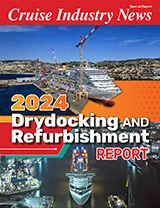
Highlights:
- Mkt. Overview
- Record Year
- Refit Schedule
- PDF Download
- Order Today
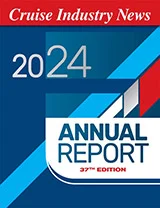
- 2033 Industry Outlook
- All Operators
- Easy to Use
- Pre-Order Offer
- Advertising
- Cruise News
- Magazine Articles
- Quarterly Magazine
- Annual Report
- Email Newsletter
- Executive Guide
- Digital Reports
Privacy Overview

IMAGES
VIDEO
COMMENTS
Foreign "flags of convenience" are used for the majority of the world's cruise ships, which has become a big problem in 2021. Here's why a cruise ship flags matters. Find a Cruise
Bermudian Flag of Convenience and Cruise Weddings. Bermuda is offering its offshore registry for UK-owned ships since 1974. First, the P&O Cruises line changed its cruise ships' flags from London to Hamilton. Most of the Bermuda-flagged cruise ships (all registered in Hamilton) are from the fleets of Princess, P&O, and Cunard.
Flag of Convenience on Cruise: You've probably noticed that most ships fly a foreign flag if you've ever taken a cruise or visited a cruise port. Over 90% of commercial ships that make port calls in the United States fly foreign flags, according to the Cruise Lines International Association.
Many cruise lines are accused of flying a "flag of convenience" as opposed to a flag of the company's origin. This is simply because it's true, and few companies would bother to deny it ...
Every ship is required by international law to be registered in a country known as its flag state. Flag of convenience, the process of documenting a ship in a country other than the country of ownership, confers the nationality of the flag state to the registered ship. Ship registries have their own set of rules regarding the types of vessels ...
As for why cruise ship fly "flags of convenience" in general, the answer is fairly simple: it makes business sense for the cruise line to do this. By registering in certain countries, cruise lines are able to pay lower operating costs or escape regulations imposed by the countries in which the ships primarily operate (e.g., the U.S.). The ...
A reader of Cruise Law News (CLN) brought an excellent opinion piece from the New York Times regarding the shipping industry's use of "flags of convenience" to my attention. Entitled " Flying the Flag, Fleeing the State " and written by Rose George, the article explains how unscrupulous ship owners evade responsibility for environmental ...
Flag of convenience ( FOC) is a business practice whereby a ship's owners register a merchant ship in a ship register of a country other than that of the ship's owners, and the ship flies the civil ensign of that country, called the flag state. [1] The term is often used pejoratively, and although common, the practice is sometimes regarded as ...
By registering a vessel under a flag of convenience, ship owners can take advantage of lower taxes and lax regulations, resulting in significant cost savings. Flexibility and convenience. FoCs offer ship owners the flexibility to register their vessels in different countries, depending on their operational needs. Access to global markets.
What exactly are Flags of Convenience? They have been used negatively in the media to make cruise lines look bad. This episode shows hoe cruise lines go way ...
Use of FOC ships allow American-owned cruise lines to side-step American labor laws. Mariners working on foreign-flagged cruise ships also lack the pay, benefits, and labor protections available to their American counterparts. A typical able seaman on an FOC ship will earn about $1,500 a month for 12 hours of work every day, with little to no ...
to the COVID-19 outbreak. Since 2009, cruise ship passengers have grown from 17.8 million to 30 million, an annual growth rate of 5.4%. Id. 2. See 26 U.S.C. § 883(a)(1) (2018 ... quick and easy online registration process for ships.8 Critics of flags of convenience and open registries, like trade unions, governments, and international ...
The COVID-19 pandemic has exposed additional weaknesses of the already troubling "flag of convenience" practices under international law; the passenger cruise industry was especially impacted. Most cruise ships under distress from the pandemic received little aid from their flag states, and many vessels were denied entry into ports of nonflag states (regardless of whether an outbreak had ...
The most popular countries for cruise ships to register their flags to are. Panama. Bermuda. Italy. Malta. The Netherlands. A ship's registration can be seen on the aft below the name. Below is a photo of Royal Caribbean's Symphony of the Seas which is registered in Nassau. I recently took a cruise on Symphony of the Seas, to find out all ...
3.1 General. Despite the large number of American cruise travelers, very few ocean-going cruise ships sail under the U.S. flag. The tradition of flags of convenience, a fundamental principle of maritime law, is at the same time the crux of the most difficult challenges in this industry—for the governments that attempt to regulate personal and environmental safety and frustrated by their ...
In 2017 Celebrity Cruises registered all of its ships in Malta after the country legalized same-sex marriage. By using Malta as a flag of convenience, Celebrity Cruises can offer same-sex weddings onboard their cruise ships. Drawbacks of Using Flags of Convenience. Sailing under a flag of convenience isn't without drawbacks.
Sailing a ship under a flag of convenience is a business practice that a growing number of ship owners take. The ship operates and is taxed under the laws of the country for which it is flagged. Registering the vessel in a different country than the one where the owner lives helps them save money. In some cases, it also allows the ship to ...
Flags of convenience make the cruise ship industry one of the world's least regulated, with owners and operators able to skirt more stringent workplace, health, safety and environmental rules.
Most cruise ships under distress from the pandemic received little aid from their flag states, and many vessels were denied entry into ports of nonflag states (regardless of whether an outbreak had been documented onboard). ... 19 W. C. Terry, "Flags of convenience and the global cruise labour market," in R. Dowling and C. Weeden (eds ...
The COVID-19 pandemic has exposed additional weaknesses of the already troubling "flag of convenience" practices under international law; the passenger cruise industry was especially impacted.
The cruise industry typically enjoys the huge benefits offered by flags of convenience even though stray incidents have brought them under the scanner. This entry was posted in Uncategorized on February 9, 2017 . ← →. Today, most ships fly flags of convenience, simply because it lower taxes in certain countries, and some rules enable lower ...
Posted in Flags of Convenience. A reporter for the Marketplace interviewed me yesterday regarding the state of the cruise industry. I explained that compared to a year or two ago, the general perception of cruise lines is up. More than 23,000,000 passengers will cruise this year. Bigger and bigger cruise ships are being constructed.
A rising cruise nation is the Soviet Union with 26 ships. "I think we are seeing an exodus away from national-flag cruise ships toward flags of convenience," said Richard Frost, U.S. general manager of Det Norske Veritas, the Norwegian ship classification society. "Ships registered in Liberia or Panama no longer imply lower standards ...